First of all, I would like to thank Zhang Aunt for letting me out for a long time. This is also the first person I reached for this exclusive soy sauce head. Therefore, the landlord will also do my best to lead everyone to learn more about the advantages and disadvantages of MI's TV 3s 65-inch version.
The first thing to do is to make a short statement, because the toe can be thought of for a foreseeable battle situation in the commentary area for a while. I am not a rice noodle, nor is it a rice black. In addition to the Xiaomi cell phone, there are indeed other Xiaomi devices at home. This review will not have personal feelings. When the tune is not ambiguous (talk truthfully, if you listen to good words, go to the official soft article on the line), but also hope that everyone can discuss rationally, do not look because of the brand relationship The content will be the first to stand in line.
As a TV, or to buy a TV, first of all price factors, what is the primary consideration for everyone? I think the first consideration must be the size. Although according to statistics in the first half of 2016, the most popular TV size is 55 inches. In 2015, 50-inch TV sales were the best. Therefore, it can be expected that by the end of 2016, at the beginning of 2017, the sales volume of 60-inch and above TV sets will reach a record high. Of course, there is a direct relationship between this trend of increasing purchases and the decreasing price of televisions. The same price, buy it naturally is bigger and better. TVs, whether past or present, exist as large items in the home. The renewal cycle will never be changed like other small home appliances in the home. What will happen after all? Home TV buys TV for the last 5 or 6 years It is a common thing. And 11.11 is an annual shopping feast, so Xiaomi has to announce its new TV in this season has a very strong sense of business. The 65-inch product line does not exist in TV products before Xiaomi (only a 65-inch surface-mounted TV is sold at a high price. Obviously, the advertised meaning of that TV is greater than the meaning of gold).
Gossip less, below directly out of the box.
The TV is delivered by Zhang Da Ma, and the SF Express is being used. It was sent out from Beijing on Saturday and it was on Monday. (Say that all the monarchs don't rest on weekends?)
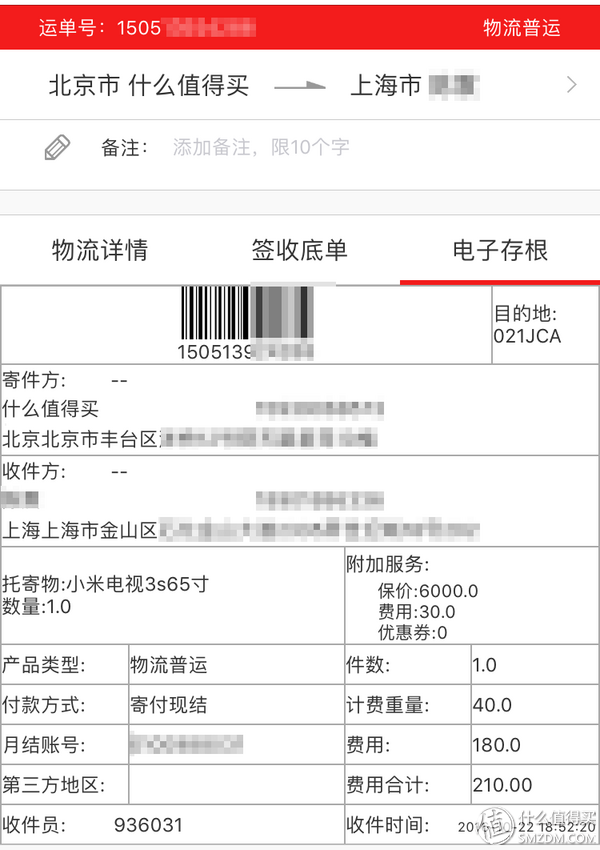
Things have not arrived yet, and I am shocked to see the electronic bill. This television has a weight of 40kg. That weekend coincided with a cold and then a fever. So when I was sleeping at home on Monday afternoon, SF came to the phone and asked me to go down and help bring the TV together. He was powerless and there was no other person at home. Can only drag sickly body, go downstairs to move together. Can only say that, fortunately, living on the second floor, even if there is no elevator, moving up is not too hard, but a sweat is inevitable. Originally wanted to open a box to check squats, but it was weak. Xiaoge also said that there would be no problem with this reinforcement package. so be it.
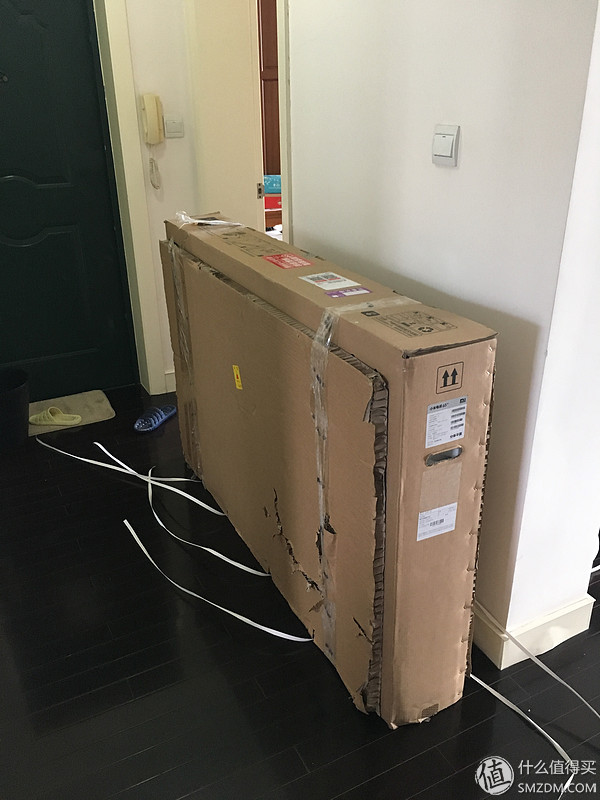
The two large pieces of corrugated cardboard on the side were later reinforced, and it can be seen that one piece has been broken, but fortunately it did not hurt the original packaging.
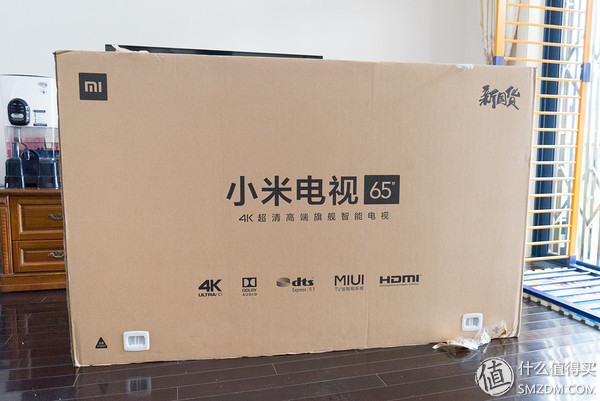
Remove the reinforced cardboard, you can see the TV's original packaging, marked above the 65-inch TV is the millet, but the following did not write the young man's first TV, may be 4999 for young people, the price is still a little higher, write Is the "4K ultra high-definition flagship smart TV." Below are some iconic ICONs.
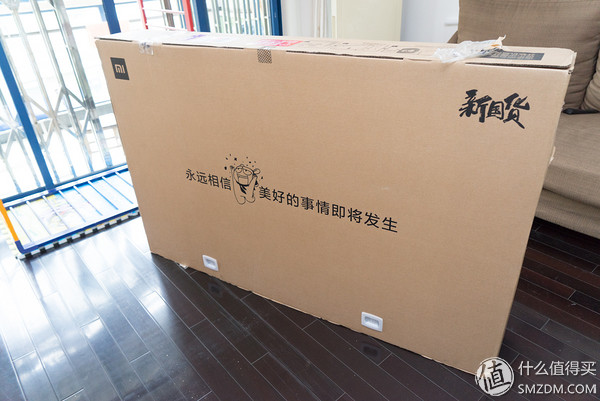
On the other side is the phrase "Always believe that no good things are going to happen." In the middle of the sentence, there is a rabbit.
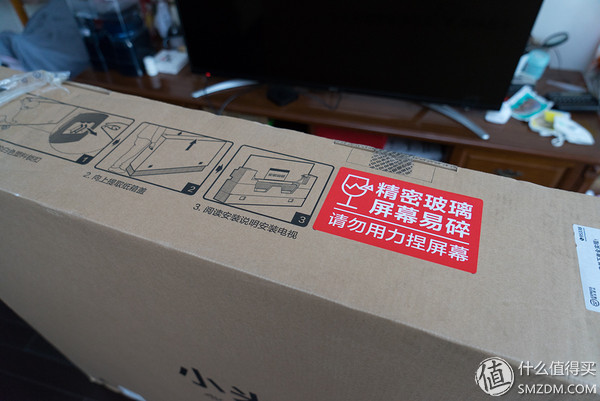
The top is marked with an opening note and a fragile reminder. What is strange is that this time Aunt Zhang's shipment was not marked with a yellow tape, and SMZDM's white label. Here, we must comment on the audience of the king. Even if we work overtime on weekends, we must not be lazy.
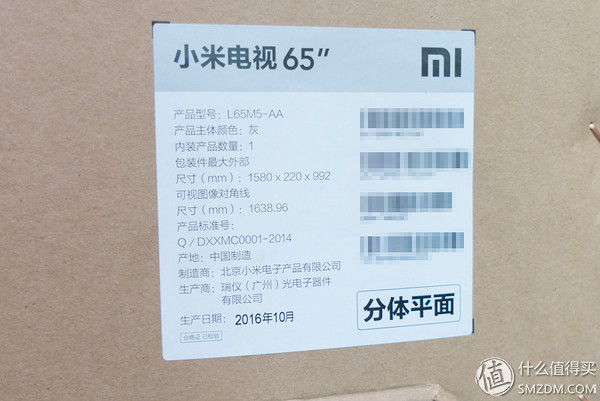
The product nameplate is affixed to the side of the side, and the manufacturer is Ruiyi Optoelectronics Guangzhou Factory. The production date is still fresh and should have no shelf life.

The other side is labeled with energy efficiency, this millet 65-inch TV energy efficiency rating is only 3, which is just the access level. However, some people really care about the TV's energy efficiency level, but anyway, this part will be detailed testing in the later part of the test.
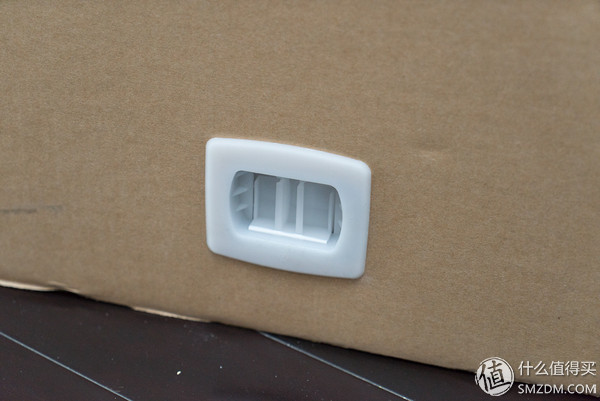
There are two such plastic buckles under the two sides of the packing box. The two vertical bars can be clamped to remove the buckle. Then lift the entire tray up to see the TV's real body.
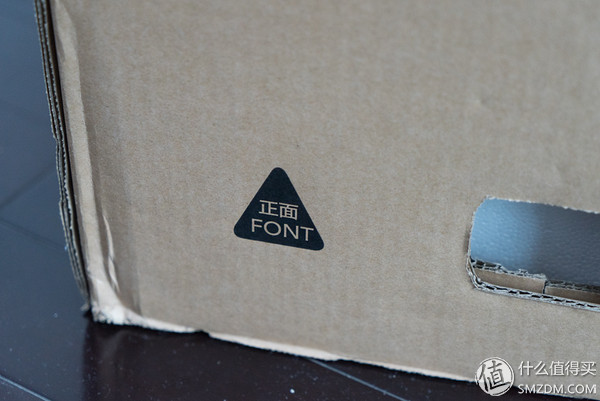
In the lower left corner of the front of the box, the indication on the front of the screen is also very close, but since the package needs to be installed after the box is opened, it is recommended to open the box on a large table or floor, and then after the bracket is installed, Move the TV to a fixed area.
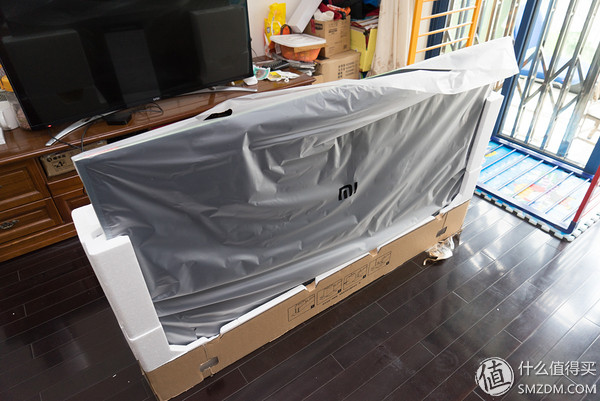
This is the case after opening, with foam support on both sides of the screen. Actually, there is buffer protection at the top of the screen and on the front of the screen.
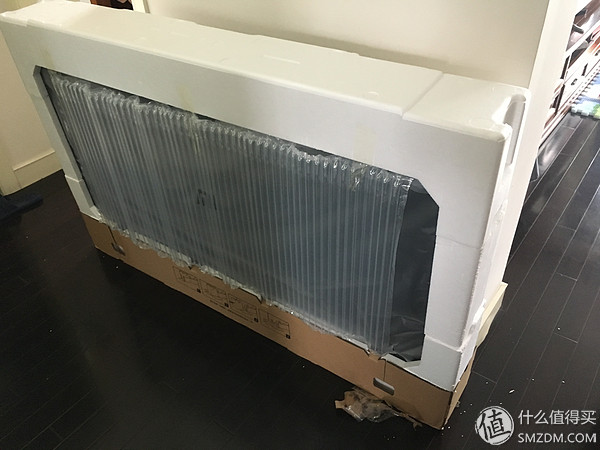
To restore something like this, you may find that there are two locations out of the box. That was because the landlord couldn't wait to get out of the box on the day the TV arrived. However, after opening the carton, he took a look and thought that this was not a one person can complete the unpacking, so he quietly packed the package back. The next day I got up and found that my blood was empty and I couldn't make it into the blood. So I went to the medical center and hung up a few days of water until the blood cell capacity on Saturday recovered about 1 and a half and I pulled a tough guy to go home. box. I don't know if this time, there will be value-friends will take this 65-inch big, 40kg gross weight to the park or the green space to take pictures...
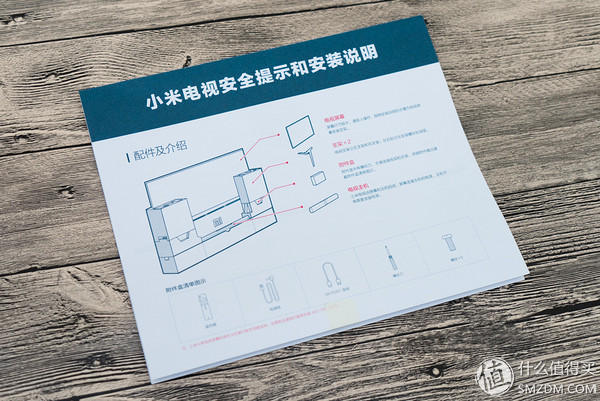
A millet TV safety reminder and installation instructions are attached to the back of the plastic bag on the screen. This is the only explanation in the entire TV. It explains in detail the installation of the bracket and the connection of the cables. As for the accessories for the entire TV, there are only remote controls, miport connections, power cords, brackets, mounting screwdrivers and 5 screws.
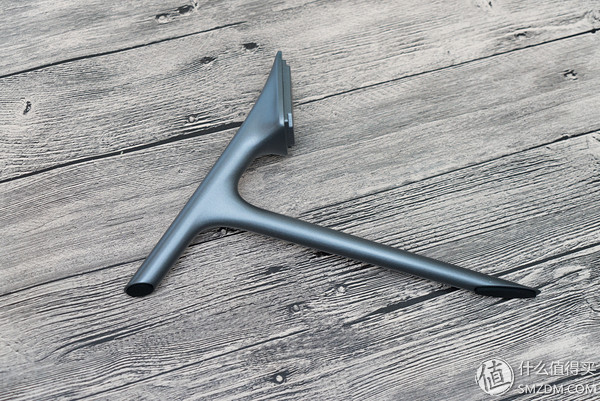
All-metal brackets, gray spray, whether it is craft, modeling, feel very good. At the bottom, there is also a rubber pad to prevent slippage and protect the furniture finish.
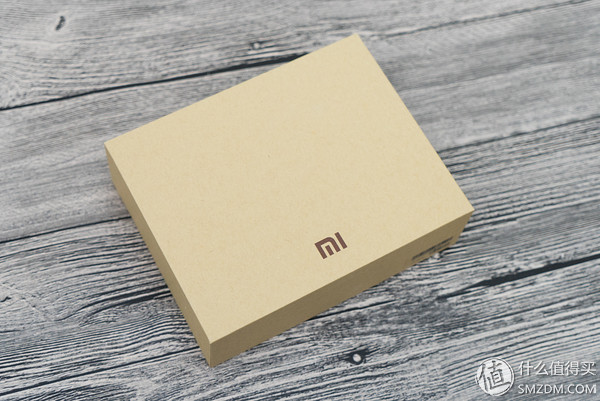
The remaining accessories are housed in the iconic kraft box printed with the MI logo.
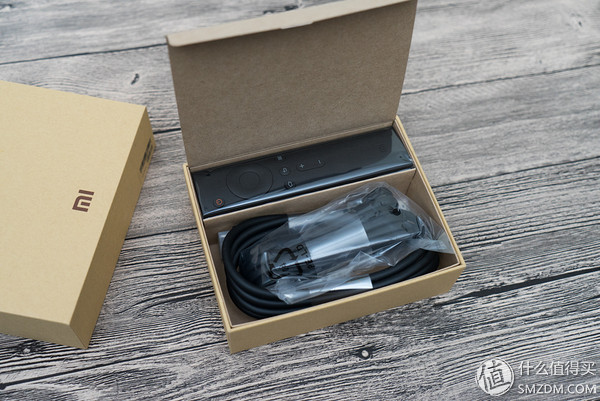
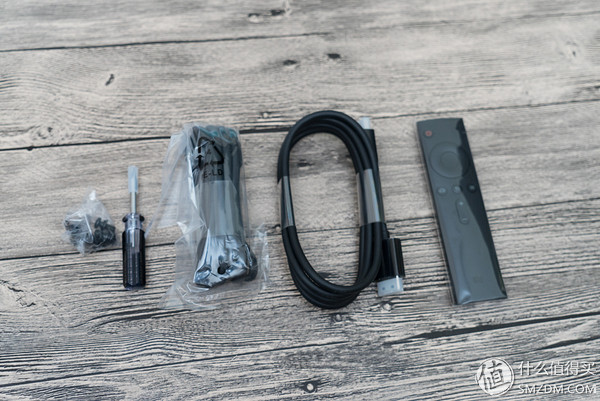
Regarding the installation of a screwdriver and an extra spare screw, I feel very caring, especially the working quality of the screwdriver is not bad, it is not like the feeling of one-time use.
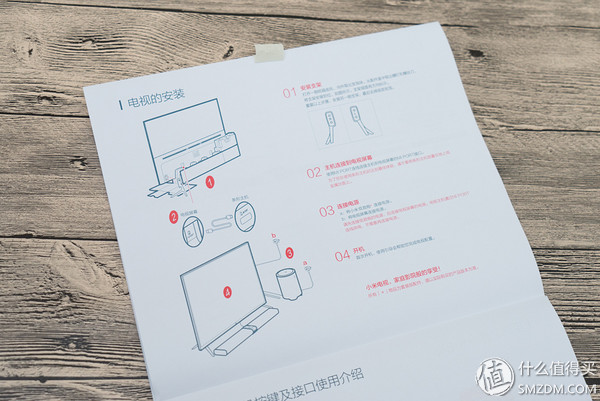
Then we will follow the instructions to install the bracket first.
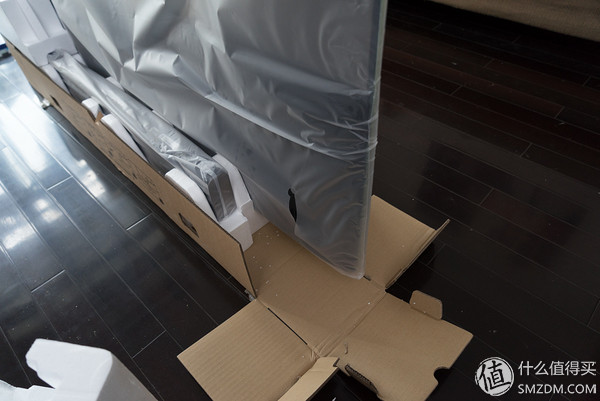
First, according to the instructions, the bottom of the box wants to pull the outside, remove the protective foam, you can see the installation position of the bracket, plastic paper has been opened in the appropriate location to facilitate the installation of the bracket.
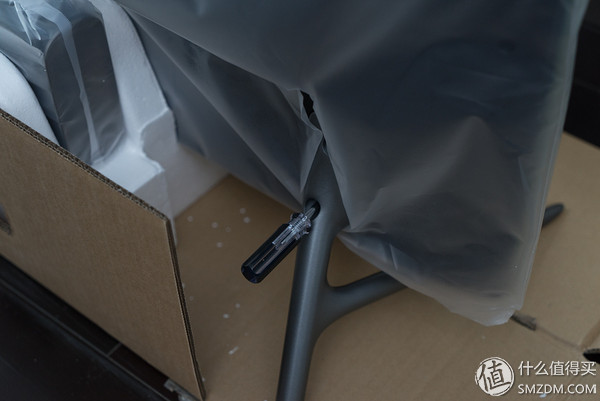
It is really easy to install the brackets on both sides. You don't need to remove the screen and you don't need other people to help. One person can complete it. This is a lot of convenience compared to some other brands who need to put the screen down, or need someone to help carry the screen up.
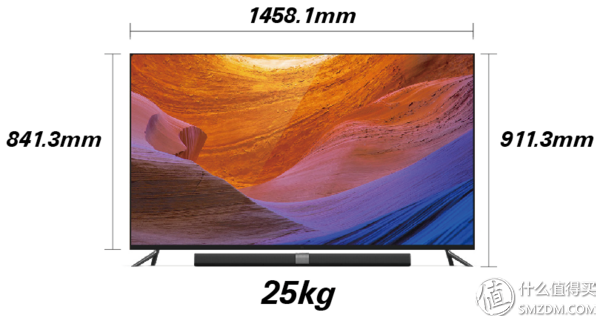
The length of 1.5 meters, the height of nearly 1 meter, and the weight of 25kg are obviously difficult for a person to move. Therefore, it is better to find a helper to move TV.
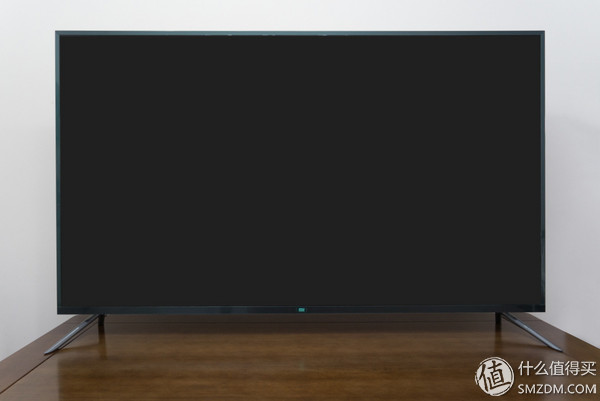
Let's move to the table and have two formal clothes. We can see that the 1.6m table is directly filled with this giant. The shape of the front is also very simple. There is nothing else but a small mi logo at the bottom. The screen is the SVA matte screen of Samsung. Of course, the meaning of matte does not mean that it will not reflect light. It is only relative to the mirror. The screen is not as reflective as it is strong.

Looking at the lower back, the upper part is a single piece of aluminum alloy sheet, and the lower part is a plastic cover. Thanks to the separation of the host and screen design, the entire screen has only two interfaces on the back. One is the power interface and the other is the miport interface to the host.
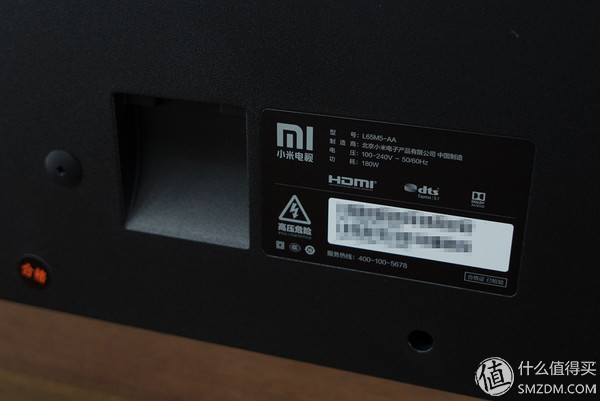
The power consumption of 180W does not seem to be low, but I think the screen has a size of 65 inches.
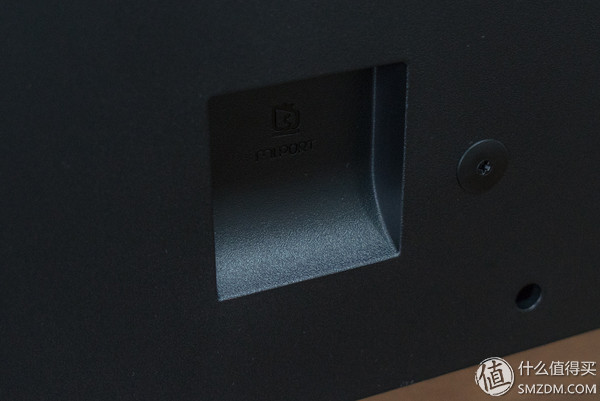
Miport's ICON is printed on the miport interface.
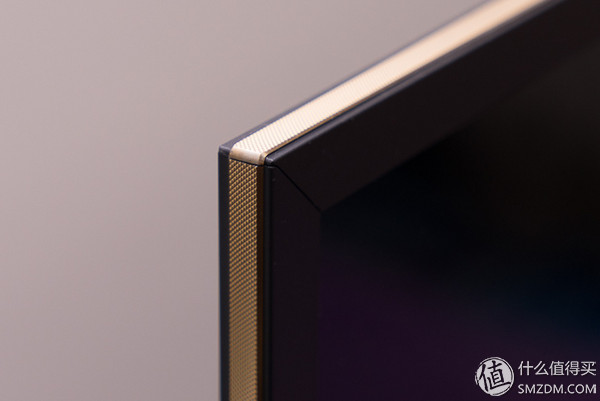
It is still a golden 45° ultra-narrow frame (9.9mm), but if you think it is grey, it will be more low-key.
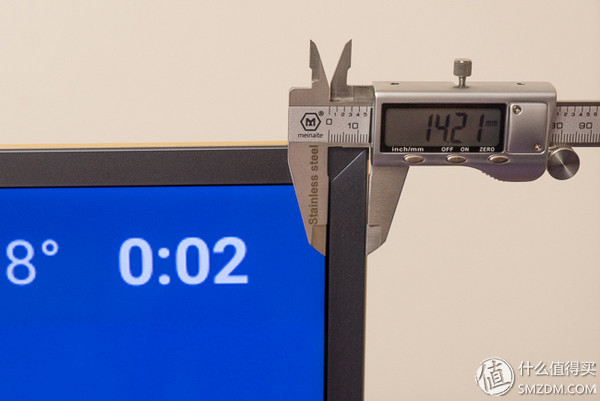
The official website did not write side border widths, so it was about 14.2mm or so, which was already narrow enough.
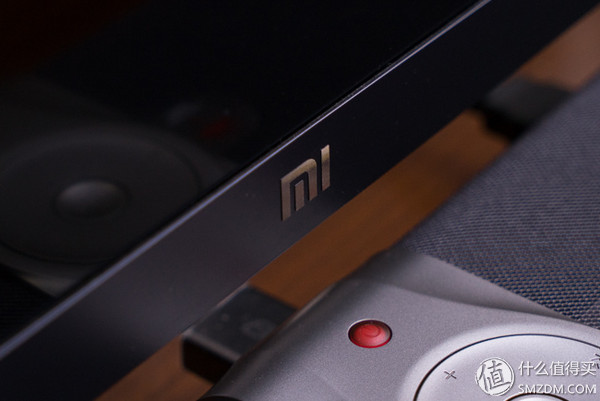
The MI's LOGO is at the bottom side of the border, very low-key.
Then we look at the host again.
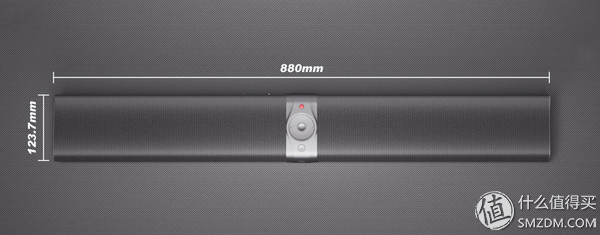
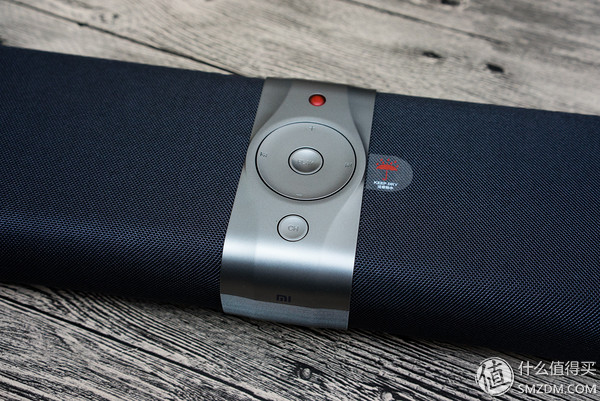
Different from the previous generation, this section of the millet TV host control part does not use metal material, but with a plastic + silver gray paint material, after changing to plastic material, the shape is a little more spiritual, the red button above is The power button, other four-way keys and CH button can control the playback of tracks and channels when listening to music on the off screen, but here is to explain that if there is no remote control, even if the TV host has a boot button to boot, However, you cannot perform any operation on the TV after entering the system interface. The speaker grille is also different from the previous metal hole material, but the use of fabric. In addition, the number of 2.5-inch subwoofers has shrunk from four to two, so the length of the entire TV host is also 16cm shorter than that of the 3rd generation host.
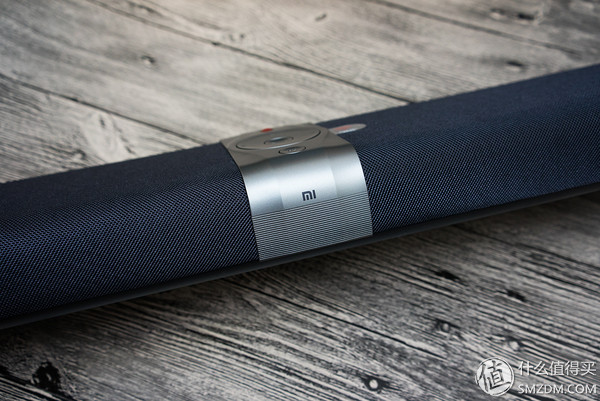
In addition to having a MI logo on the front, there are some stripes below.
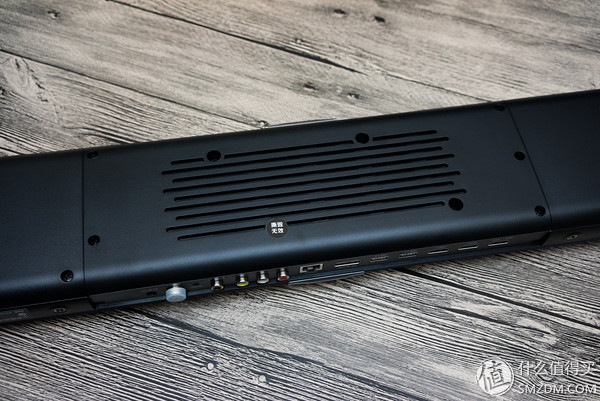
The back of the central control part of the main unit has long radiating holes to help the motherboard to dissipate heat.
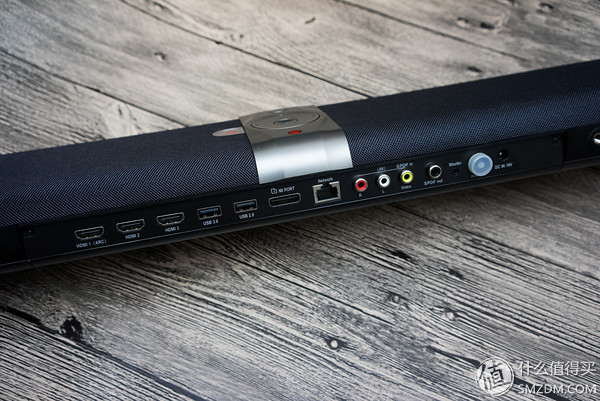
Look at the back of the interface section, the left there are a total of 3 HDMI 2.0A interface, including HDMI 1 interface with ARC function, USB2.0/USB3.0 interface each one (USB interface in addition to connecting USB drive HDD, but also Connect the mouse, wireless headphones, etc.) The MIPORT interface is used to connect the screen. On the right side are the network cable interface (100M network card), R/L/Video (S/PDIF in), S/PDIF Out, and cable TV interface. In addition to the millet subwoofer dedicated 2.5mm interface.
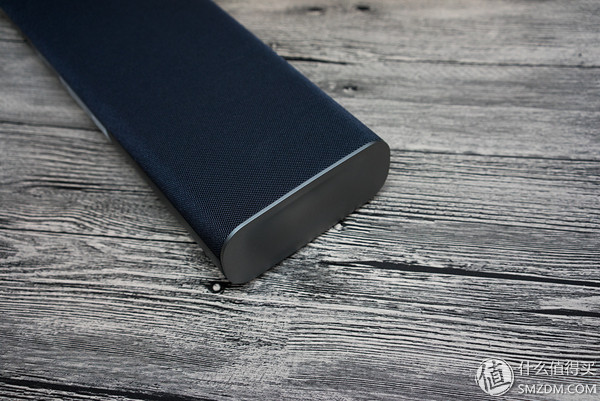
The side is a plastic panel of the same color as the central control area, with a slight sculpting.
Separation of the host from the TV screen design is the first impression of the landlord TV 3, and the landlord very much appreciated this design, thinking of buying such a smart TV, even after a few years host performance is not enough, also It is very convenient to replace a host or box, allowing the screen to continue to exert its residual heat, but the cruel reality is that the screen cannot connect with other devices because Xiaomi has made an interface MIPORT for this kind of collocation. And as of today, Xiaomi does not have a separate MIPORT interface TV host sold separately, of course, this may be because Split TV has only 2 generations, at this stage there is no need to upgrade it. However, the 3s host has a simple configuration with respect to the number of materials and speakers relative to the 3rd generation. Although it may be due to the high cost of the large 65-inch screen, as a consumer, this kind of upgrade is simple. Suitable. However, in the landlord's use evaluation process, the host's sound quality performance is still remarkable, as a TV's sound effects, it is still very good.
Then say the next attachment:
Millet TV 3s 65-inch version of the standard remote control for the most common infrared remote control, in the later use of the discovery of Meng Bao's fence just blocked the host's infrared receiver, so it directly to spend a single one of the latest single Bluetooth Somatosensory voice remote control, easy to use. Of course, in addition to the remote control, you can use a mobile phone to operate the TV, but why do you have to complicate simple things?
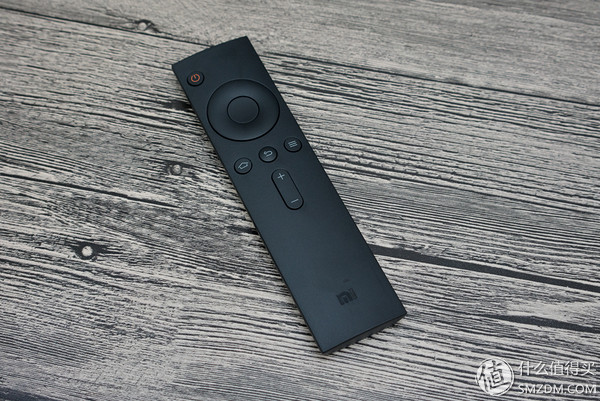
The remote control is very simple, an opening key, a four-way ring button, the middle is the confirmation button, the bottom is the Android function button, home page, return, menu. And a set of mobile phone, and then below the volume plus or minus keys.
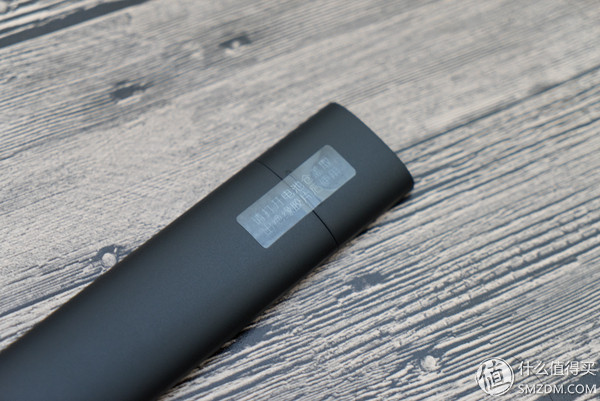
A reminder label is attached to the back of the battery compartment. The insulation film in the battery compartment must be removed before use. Although many people think that millet air purifier does not remove the filter packaging film will have a certain degree of purification effect, but the landlord said that this piece of insulation does not split, relying on ideas can not control TV.
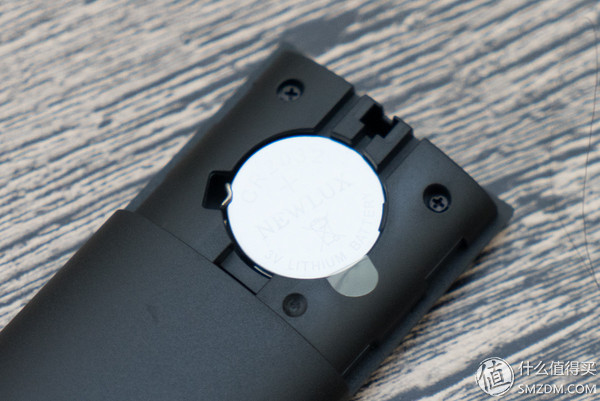
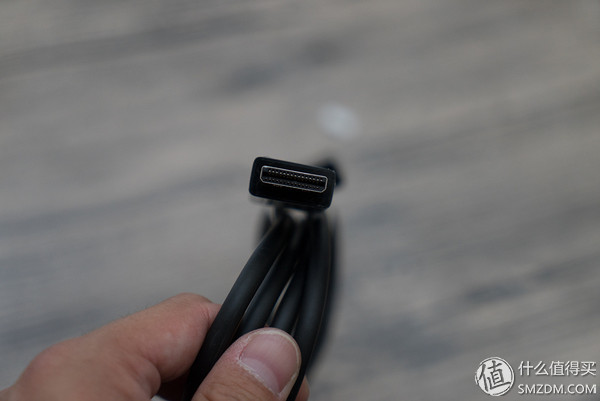
The miport interface is D-shaped and is used to connect the millet TV host and the screen. Boldly speculated that Xiaomi may just change the HDMI interface and add a few more loops for host power and communication. And millet official MIPORT-> HDMI cable sales, you can use the millet TV host connected to other HDMI display devices, but we can not use this switch cable to connect other HDMI devices directly to the big screen, this slightly regret.

The power line uses a right-angle plug. This is basically a standard TV. It's nothing to say.
Then is the combination boot, the connection is too simple, it does not waste space to say more, direct boot (the actual measurement from the time the switch to the TV display desktop is 38 seconds, there is no advertising).
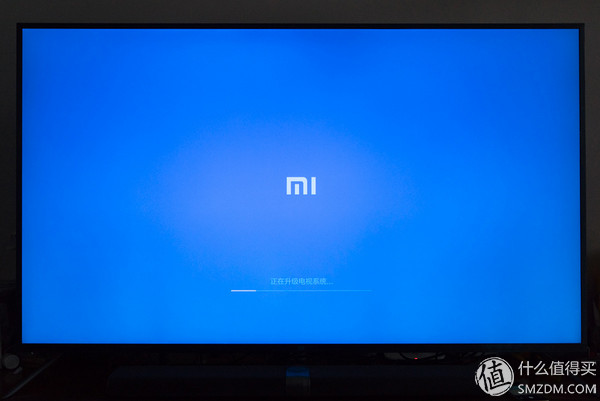
The routines are directly updated by the system, and they are not exempt from customs. I just think that I have not even connected to the WIFI. You will directly use the upgrade package in the machine to upgrade. This can be done before leaving the factory.
Then the boot screen is very simple, blue, white logo.
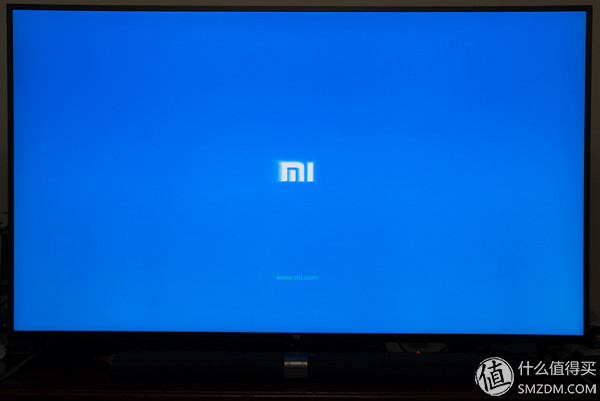
It may seem that television may be relatively small in photos. However, compared to the original LeTV S50, the experience is still very large. However, the landlord said that he is not satisfied. Taiwan's 80-inch living room, what TV is the best viewing distance from the guide, are all nonsense. The television will never be too big. Only the drums are not enough and the walls are not big enough.
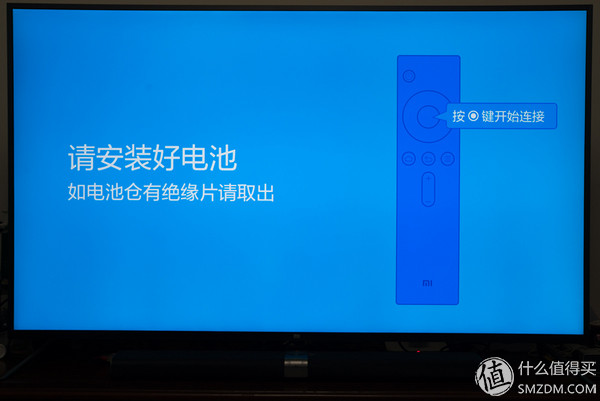
Remove the insulation sheet and press OK directly. The next step
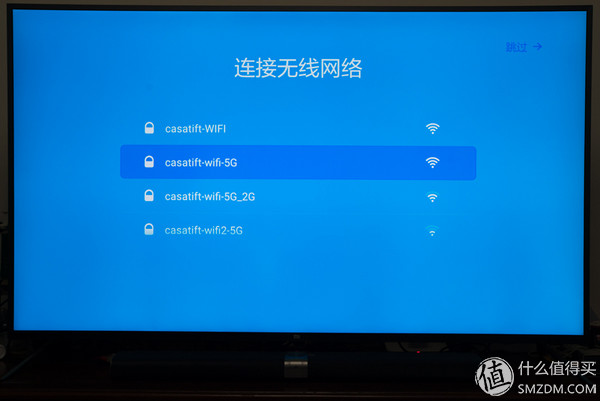
Connect wireless network, support 5G, praise. The SSID looks a bit more, mainly because the home network is now bridged by two routers.

Then set up a millet account, of course, this step can be skipped.
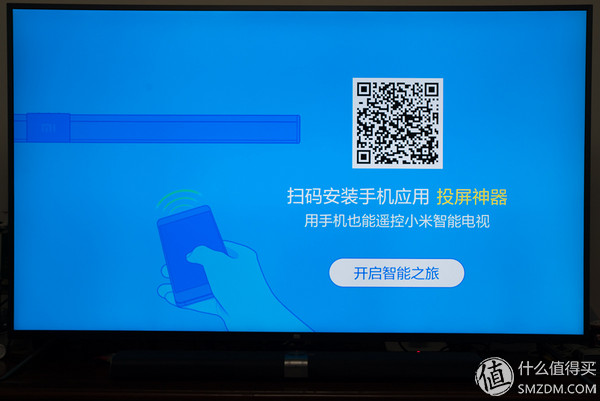
Then there is an advertisement for the screen-casting artifact. In this regard, the entire TV is set up and can be used happily.
Before the actual test, we first look at the millet TV 3S 65-inch various hardware parameters, the first thing to look at is naturally close to a 1.5-meter 65-inch Samsung SVA screen.

As a currently released 65-inch-class smart TV, the 4K UHD (3840x2160) is already standard, even though the 4K source is not so easily available. Just millet 4K TV each time they will emphasize that they are true 4K, then there is false 4K it?

The conventional liquid crystal panel includes three sub-pixels of RGB in each pixel, and controls the pixels to display different colors by changing the brightness of the three sub-pixels. Theoretically, each sub-pixel of the 8-bit liquid crystal panel has 0-255 of 256 pixels. Level changes, so it can display 16.7M colors. The 4K UHD's LCD panel has 3,840 horizontally and 2,160 pixels in the vertical direction. This is the true 4K that Xiaomi said, and is currently the mainstream panel type adopted by major manufacturers.

Regarding how to cut corners on the screen, Samsung is definitely a big company. Whether it is the Pentile array of AMOLED or the GREEN UHD to be said now, it fully demonstrates Samsung's infinite wisdom in how to reduce costs. Samsung GREEN UHD adds white pixels in addition to the traditional RGB three-color sub-pixels, but instead of using RGBW as an entire pixel, it uses RG as a pixel and BW as a pixel. The result is each one. Individual pixels cannot completely display colors. RG pixels must borrow B pixels from adjacent BW pixels for complete color display. Although on the surface, the Samsung GREEN UHD still has 3,840 pixels in the horizontal direction, its full-color pixels are only 1920 pixels. As for the GREEN UHD, the total number of sub-pixels in the horizontal direction is only 2 X 3840=7680, which is more horizontal than the RGB 4K UHD. The number of sub-pixels is a whole 1/3 less, so there is no need to say more about the display effect.... As for the additional W sub-pixels, for the brightness of the panel to enhance, the machine's energy saving does have a role, but its biggest significance lies in reducing the overall cost of the screen manufacturing.

Another panel giant LG Display also has similar RGBW products on the 4K panel, which is officially called G+UHD panel. Although the W sub-pixels are also added in addition to the RGB three-color sub-pixels, LG does not quite know that a combination of two sub-pixels is called one pixel, but four sub-pixels of RGBW are combined into one pixel, theoretically. Said that the addition of W sub-pixel 4-color pixels, compared to only RGB three-color pixels, can get a greater increase in color depth, 4-color pixels can theoretically show 4275.2M colors. However, LG's goal of G+UHD production is to save costs, so in the horizontal arrangement, G+UHD uses 2880 complete RGBW pixels. The total number of sub-pixels is the same as the 4K UHD panel arranged in RGB, but on the total panel pixels. , about 200W pixels less than 4K UHD. The display effect is between the Samsung Green UHD and the RGB 4k UHD. Some of the cheap 4K products on the market are for this panel (you can see what 4-color LG panel you can avoid by yourself).

Honestly, it is still controversial whether Samsung has an SVA screen. When it was said in 2014, Samsung changed the name of its PVA screen to SVA, but those who said this were not very OK, but in the AVS forum, there are some disputes about the SVA screen, but everyone basically reached the consensus that Samsung does not have the so-called SVA screen, only the S-PVA screen and C-PVA screen. For this reason, the landlord specially consulted Xiaomi. Engineer, the basic confirmation millet TV 3s 65-inch version uses the Samsung S-PVA screen.
In the field of LCD panels, the battle between VA and IPS has also been going on for many years. It is often said that the IPS is a hard screen. First of all, it's hard to touch and it doesn't have water ripples or white spots. Followed by IPS color reproduction is good, but the angle is large. However, the disadvantage is low light transmittance, slow response time, especially low light transmittance, it requires a stronger backlight to match, the direct result is the IPS screen black impure, obvious light leakage. The VA screen as a representative of the soft screen, there will be white spots and afterimages when pressed by hand, but its corresponding speed is faster, and the light transmittance is high, it will be more energy-efficient than IPS, and the light leakage phenomenon will be better (not not), The contrast is also much larger than the IPS screen. But its disadvantage is poor color reproduction, although it can be considered a wide viewing angle screen, but the landlord's perception is that there will be some changes in the color brightness at a large viewing angle. If you say it in a general way, IPS must be better than VA, or VA must be better than IPS. It can only be said that each has its advantages and disadvantages. When you buy it, go to the physical store to feel it.
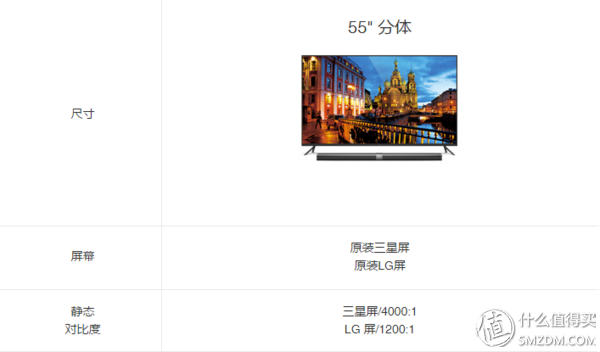
For example, the 55-inch split millet TV 3, while equipped with Samsung SVA screen and LG screen two specifications, which SVA screen static contrast ratio can reach 4000:1, while the IPS screen static contrast ratio is only 1200:1.
I also used a macro lens to take a picture of the screen's pixel structure. Everyone can see:
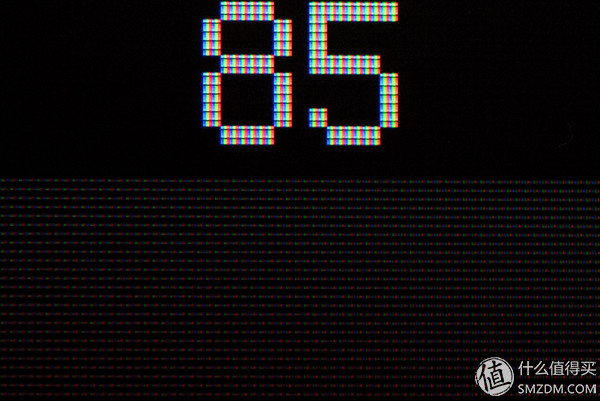
This is Xiaomi TV 3s 65-inch screen shot, forgive the landlord, only a 1:2 macro lens, 4K screen to deal with some difficult, can only be made like this, but we can also distinguish the panel is RGB pixel array , And under 85 is a gray color, we can see that the vertical dot pitch seems a bit large, this is the S-PVA unique half-pixel display technology, it divides a pixel into two, when the brightness is greater than 50% When using the entire pixel (number 85 in the figure above), it uses only half a pixel when the brightness is below 50%. Such technology can make the contrast and color depth of the picture further improve, and the screen without the half-pixel display technology is as follows (taken is the 1080p screen of the Levision S50).
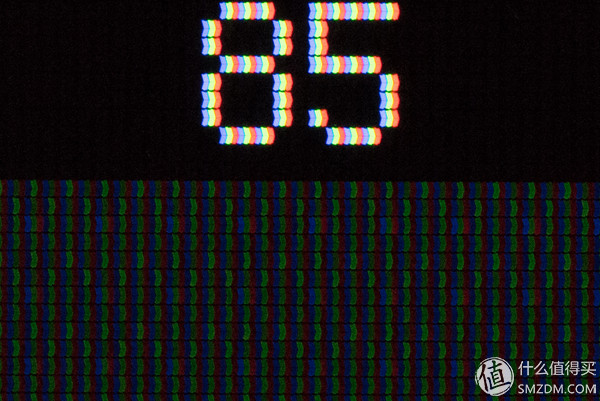
The original picture is like this:
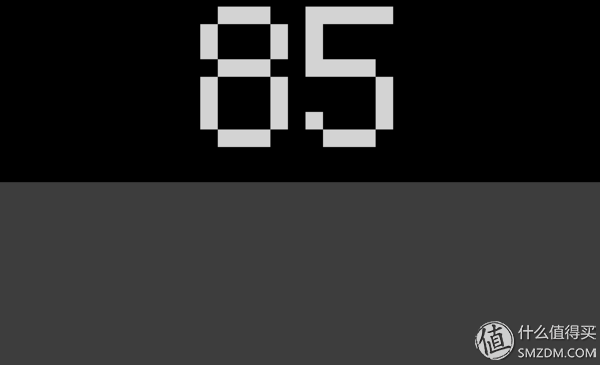
Regarding the brightness and color gamut of the screen, according to other evaluations on the Internet, the NTSC color gamut actually exceeds 90%, and the brightness is about 320 nits. As a wide-view screen, we also look at the viewing angle of this screen:
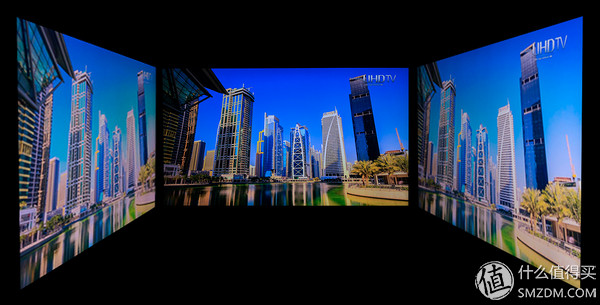
You can see that the viewing angle is still good. A TV set with a size of 65 inches is not a monitor, so you can't shoot it up or down. (Actually, conditions are limited and you can't shoot it)
Here to talk about the backlight, the backlight used for the millet TV 3S 65-inch version is the bottom side backlight developed jointly by Ruiyi and Xiaomi. In general, the LCD backlight is divided into two types, direct type and side-entry type. Their structure is as follows:
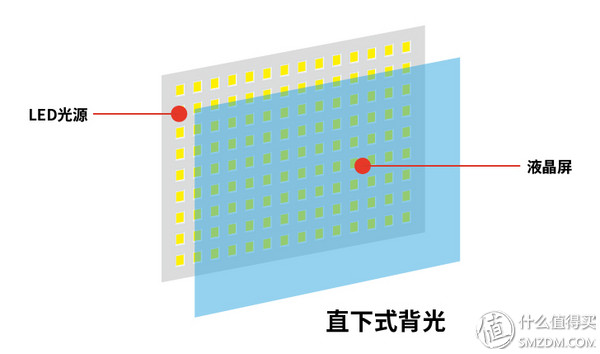
Direct-type backlight is also called matrix-type backlight. Basically, there are thousands of LED light sources on the back of the LCD screen as the backlight of the LCD screen, so that the brightness of the entire area of ​​the LCD screen will be relatively uniform, and it will not be relatively large. Light and dark distribution. And these thousands of LEDs can be grouped or individually controlled to control the backlight of the LCD screen. For example, if the screen in a certain area is dark, the brightness of the LED group in the corresponding area can be turned down or even turned off. To achieve more excellent contrast. If you use the RGB direct backlight module, you can improve the color gamut of the LCD screen. Although the direct type backlight has many advantages, it is expensive to manufacture, the control circuit is relatively complicated, and it is thicker than the edge type backlight.
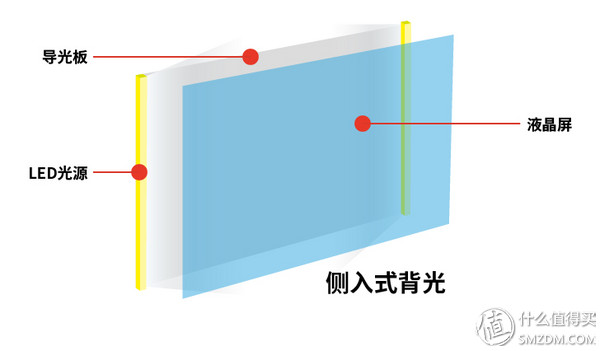
The side-entry backlight is relatively simple, with hundreds of LEDs installed around the screen. Then through the light guide material, the light source covers the entire LCD screen, so its disadvantage is also very obvious, that is, the brightness of the mounting side of the LED light bar is usually higher than the center of the screen, the light leakage phenomenon will be more obvious, as for the partition backlight, naturally more It cannot be divided into hundreds of regions as in the direct type. It can only be divided into several regions. Although the performance of the side-entry backlight is not as good as a direct-type backlight, but its advantages are low cost, stable and reliable, and can make the TV / display appearance ultra-thin.
At present, the mainstream models of millet TVs have eight-zone dynamic adjustment of the backlight system, see this, and then think of the bottom side of the millet TV 3s into the backlight, the landlord's mind emerged a TV backlight horizontally divided into 8 Look, how do you think about how awkward, then what is the partition, let us measure it. In this step of testing, we turned on the TV's dynamic backlight option, and then connected the notebook to the TV, placed a small area of ​​white text on a pure black background, and then recorded the operation of the intelligent backlight through the camera's long exposure. . The test chart is as follows:
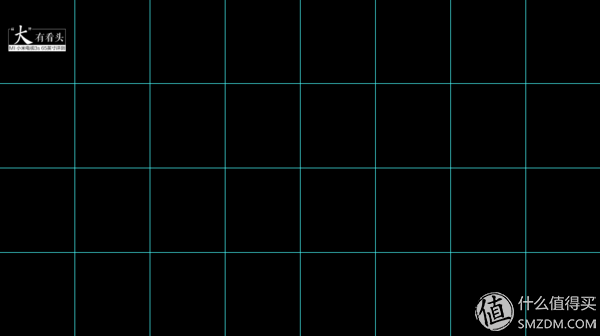
Divide the screen horizontally into 8 blocks and vertically divide it into 4 blocks, altogether 32 sections, and then move the text in the blocks to shoot. The results are shown in the following diagrams. In order to better represent the partition conditions, screen shots are taken. Some processing has increased the exposure of about 7 gears. Therefore, the brightness distribution of the entire screen can be seen exactly. Of course, except for the full black screen, the entire screen is almost undetectable. of.
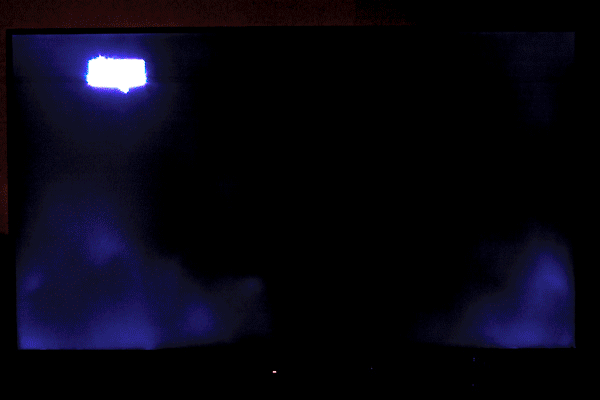
Looks like the landlord imagined, but there may be value-friends will say that this phenomenon may also be caused by white color blocks affecting the formation of the camera exposure, so the landlord has long prepared a hand, we will set the dynamic backlight option to close, the same The exposure settings, the same late stage groupings were also done:
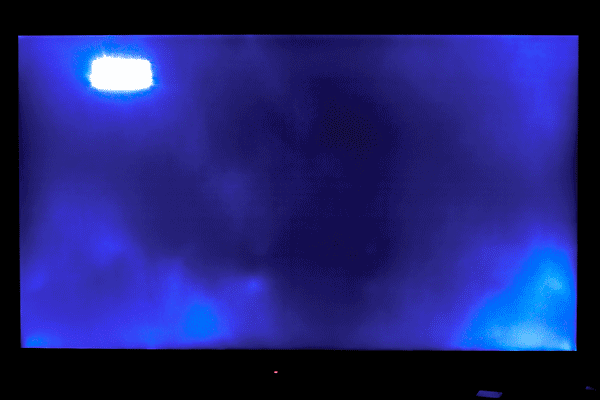
This group of landlords only shot 8 but it is enough to explain the problem. Millet's dynamic backlight partitioning method is really divided into 8 areas in the horizontal direction. When a certain area is brighter, the backlight in this area will be adjusted to the brightest, and then the backlight brightness on the left and right sides of the area will be gradually reduced.
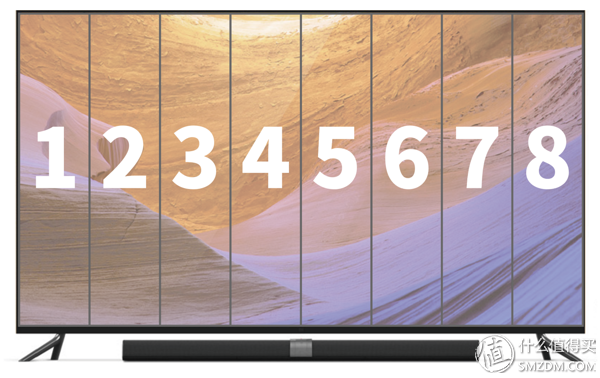
To be honest, such a partitioning method is also very helpless for a single-side backlight TV. However, such a partitioning method has very limited help in improving the contrast ratio of the screen. In view of its actual role, it can only improve the entire black screen. When the screen leaks light and saves power.
Since it comes to light leakage, let's test the light leakage of the screen (the following backlight brightness is 100 max):

After turning on the dynamic backlight:

We can see that in the case of dynamic backlighting, there is still some light leakage in the four corners, but fortunately, it can only be observed at night with a full black screen, and there will not be any obscene influence. With the dynamic backlight turned on, the light leakage of the screen can be greatly improved, and the entire screen does not seem to leak light.
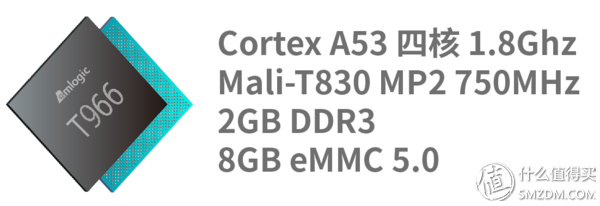
This generation of millet TV 3S uses Amlogic's T966 64-bit chip to replace the MStar 6A928 used on Xiaomi TV 3, while Amlogic T966's new features compared to MStar 6A928 mainly include HDR10 decoding and 1080P@60 frame support. However, the impact of using Amlogic chips instead of MStar chips is the loss of MEMC motion image compensation technology. Personally think that the use of Amlogic's chips is still based on cost considerations to deal with the recent increase in LCD panel prices. For the performance of the T966, although the quad-core A53 and the Mali-T830 are not listed on the flagship top level, they are also at the mid-range level, with smooth system use and running some games. Because Amlogic T966 is a chip recently released by Amlogic, so the online evaluation data is almost 0, even the official website is not related to the only know T966 is a modular TV chip, while there is also a T968 as a TV chip, the landlord also tried Through the wife's former colleagues in the semiconductor manufacturing industry, they wanted to get in touch with Amlogic and learn about some online materials. However, in a circle, everyone said that they had never heard of this family, and only TSMC employees who had worked for Amlogic were found. It is said that this is a domestic small company in Zhangjiang that specializes in set-top box chips... but others do not understand it. Well, it's only possible to run a sub-section:
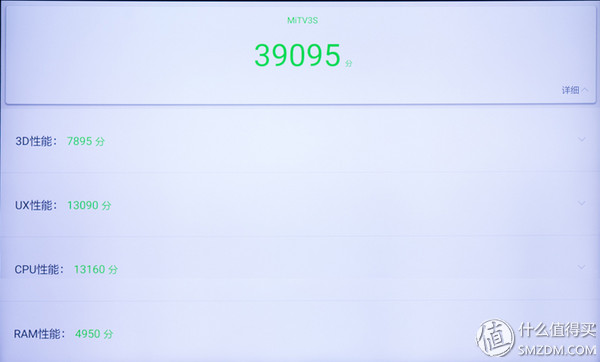
Perhaps less than 4W points in the mobile phone industry can not even mention a starter, but in the field of smart TV chips, 3W9 running points is almost the mainstream level, but it should also prove that AMLogic T966 is indeed a little in terms of performance It is inferior to the MStar 6A928 used in the Millet TV 3 (the running margin of the Millet TV 3 is about 4W4). However, the system and operation are very smooth, and the chip does not become a short board for the entire TV.

The first thing to test is the HDR decoding capability of the millet TV 3S 65-inch version. The Xiaomi 3s 65-inch version supports HDR10 decoding, but the screen parameters do not meet the HDR requirements. However, there are also some value-friends mentioned in the original PS4 through the software upgrade to get HDR10 support, but after connecting the millet TV 3S, still can not open HDR output options. Therefore, it is doubted whether Xiaomi has no HDR at all, so we specifically measured the HDR decoding function of Xiaomi TV 3S. In order to distinguish between HDR and SDR, we specifically used the demo segment of SONY HDR TV - "Campaign", this film. The biggest feature is that there are HDR and SDR dual versions that can be compared at the same time (the figure above shows SDR, the figure below shows HDR, and there are also subscripts in the upper right corner of the screen camera).






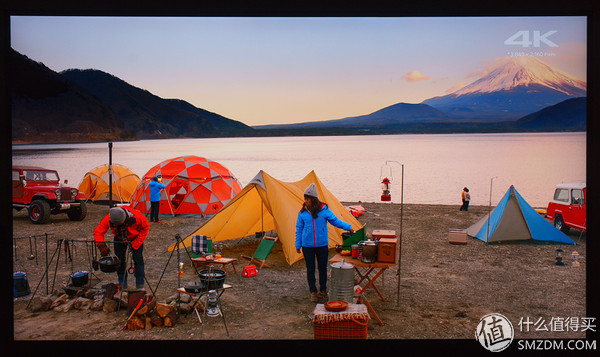
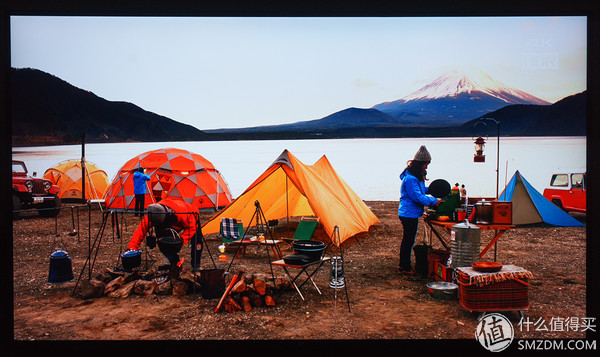
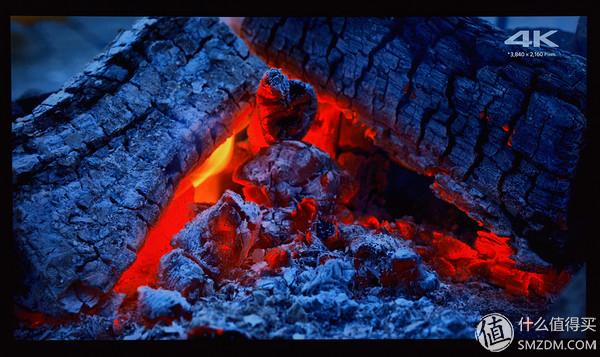
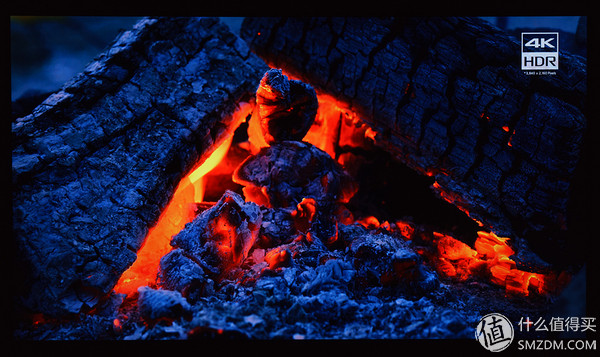

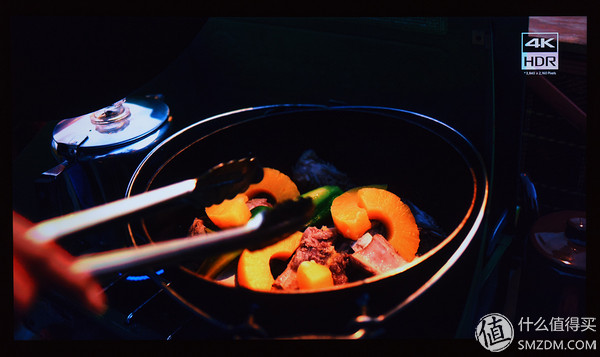
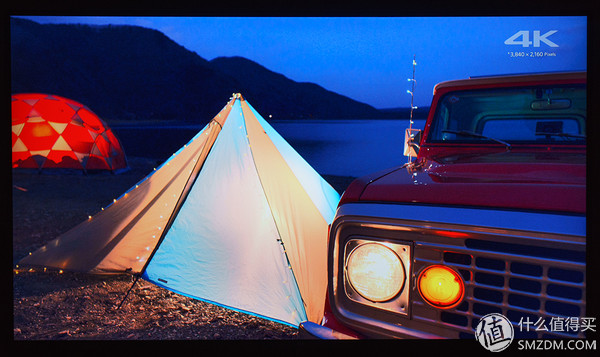
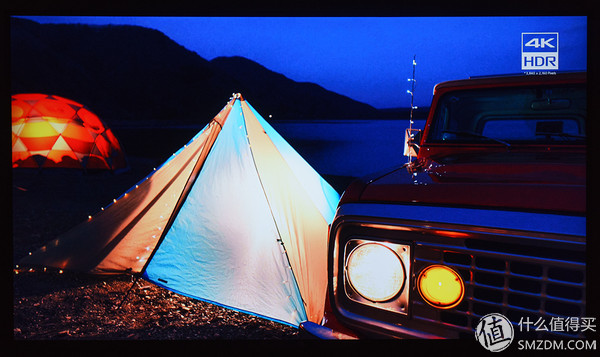


As you can see, in HDR vs. SDR movies, highlights will be brighter and shadows will be darker, and color saturation will also increase. Many people may think that the details of such highlights and shadows are lost too much. What does HDR mean? First of all, we must understand that HDR films are different from HDR effects in photography, although both are called HDR. HDR on photography We highlight the highlights and highlights to reveal many details that may not be visible (be affected by the equipment and the display device), but do you think HDR-style photos are true? If an entire hard disk is displayed in the same style as HDR photos, it is estimated that if you do not see it for a few minutes, you have to faint. The film HDR is to raise the color depth of the film to 10bit/12bit, which makes the original movie's color level more abundant, followed by the need to meet the HDR standard equipment to reproduce 10bit screen, one of the big requirements is the brightness, In accordance with the national standard at least 450 nits, and millet TV 3s is clearly no color depth or brightness standards, so even with HDR decoding, it can not be a perfect reproduction of the original film content, because the level of highlights and dark parts are greatly compressed into 8bit display, direct response is the lack of details of these two parts, after all, 8bit panel display can only perform 256 gray levels, and 10bit grayscale information has 16384 levels. But then again, the above SDR vs HDR picture, which one do you prefer? The landlord is obviously more like HDR. At this stage, UHD's video has not been popularized, not to mention HDR. HDR-compliant display devices are somewhat expensive. Therefore, it is more economical to choose non-HDR TVs or TVs with only HDR decoding capabilities.
Of course, we have to look at how to play HDR movies without HDR decoding. Because millet TV has no HDR switch, this part uses a computer to perform soft solutions:

Compare Xiaomi's decoding:

We can observe that the HDR video without HDR decoding support plays a whole hue contrast and is a gray one. Look closely, does it feel like a RAW format captured by a digital camera? I believe this test is enough to prove that HDTV's 3s 65-inch version of HDTV has HDR decoding capability.
The landlord's desktop is equipped with the RX480 graphics card. The truth is that it supports HDR decoding, so it is also passed along to test. When using WIN10's own movie and TV program to play, the CPU share is indeed very low, the screen part of the color display is correct, but what part of the highlight is what ghost! ! ! !
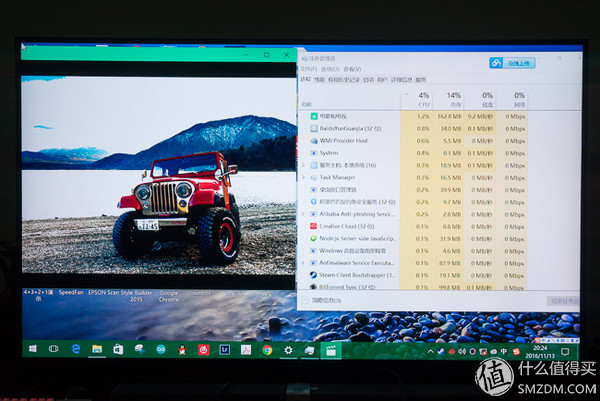
After careful study, we found that the RX480 has three DP 1.4 ports and a 2.0B HDMI interface. HDR can be output only when the DP1.4 display device is connected. My 4K monitor only has DP 1.2, so it may result in The highlight of the picture bursts directly. The HDMI 2.0B interface also does not support HDR. However, it is strange that when I use RX480 to connect millet TVs, the refresh rate can only reach 30Hz. I don't know if it is a cable connection.

As a smart TV chip, in addition to the basic CPU / GPU part, the biggest difference with the mobile phone / tablet chip is that it also has a picture quality adjustment chip, real-time adjustment of the image, Amlogic T966 uses its fifth-generation painting Quality engine. Already mentioned in the above, Amlogic T966 does not have the function of motion compensation, so the performance under motion picture is definitely worse than the TV with motion compensation function. Because some attempts were made to use some video for smear testing before, but due to the shutter factor and the compression method during video shooting, there will be some deviations, so this test uses the B station barrage for screen shot test:
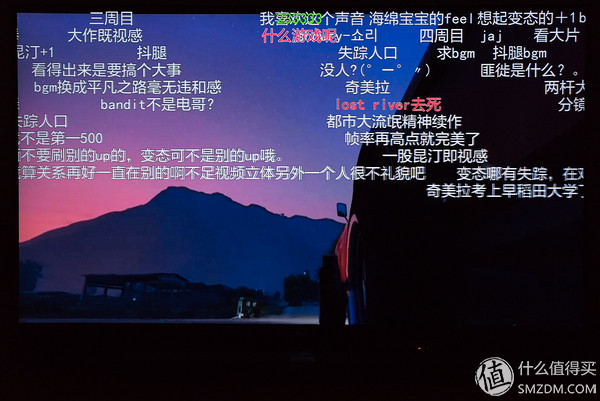
As you can see, in the screen shots, the barrage with a faster movement appeared slightly trailing. Therefore, there is no dynamic compensation function will have some impact on the dynamic performance of the TV, but fortunately, there is no visible smearing during actual viewing.
The color adjustment/sharpness processing/noise reduction adjustment of the image quality engine is not introduced in extra space. Interested valued friends can directly check the related picture quality introduction on the official website. Here it is important to stress that “ Dynamic contrast adjustment "This function. Because the landlord found a problem in the test, that is, when watching the overall picture of the dark movie with white subtitles, the brightness and contrast of the entire picture will change as the subtitles appear and disappear as a whole, as shown below From the young Pope S0103 for a title for about 1 minute):

Then I tried to close the subtitles or turn the subtitles into black. This problem has been greatly improved or even disappeared:
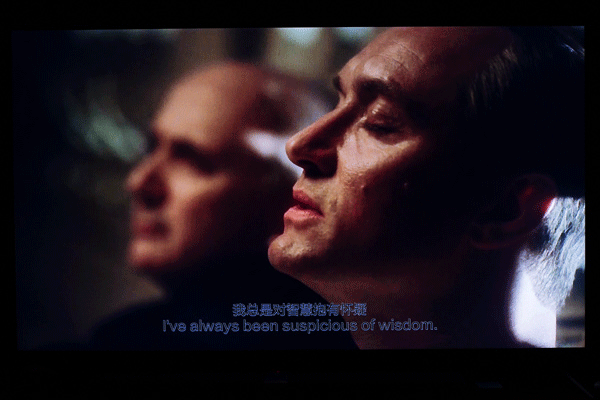

Of course, it is also necessary to attach a screenshot of the computer when playing the same file to prove that the video is correct.

When I discovered this problem, I contacted Zhang Aunt at the first time. At the same time, I called the 400 hotline consultation and posted on the Xiaomi Forum. Among them, 400 customer service said that she was not sure about the problem, but after 2 hours, she received the message. From Xiaomi's phone, the other party said that he would send an engineer to check the situation, but at this time, Zhang Aunt also helped to contact the millet engineer to communicate with me. I was thinking that the engineer linked to Zhang Aunt should be better than the customer service. More senior, it thanked the customer service engineers who sent the door to the service. However, I have to say that Xiaomi's after-sales response is still very rapid and there is no evasion. For the follow-up I have been keeping in touch with the millet engineer Yang Wulin who is looking for the cause of this problem. I would like to express my thanks, because my test is often done after returning home at night, so on this issue, I have been harassing in the middle of the night. People are really embarrassed. After receiving feedback from me, Xiaomi immediately tested the video source I had provided and found that the online video segment also reproduced the same problem on their 3S 65-inch TV. I also found the millet TV 3 60-inch version and the millet TV 2S48-inch version to test, did not reproduce the relevant issues. But I also found that using video playback will happen similarly, but the two screens are shot separately, and there is no change when the images are switched. However, similar phenomenon may occur when using the computer to play the same video through HDMI, but using AIRPLAY to mirror the past There is no problem.
The conclusion reached by Xiaomi in the end was due to the optimization of “dynamic contrast adjustment†of the image quality engine in the Amlogic T966 chip. This optimization is turned off by default in the desktop system and optimized for video only. Therefore, when viewing a picture, it will not be affected by this, and the Airplay mirroring part is not optimized by the picture quality engine (pressing the menu button will not be able to call out the picture quality parameter, so it will not be affected by it (as long as it is currently). Currently Xiaomi is targeting this. A question to discuss how to solve is to increase the dynamic contrast adjustment switch button in the test menu, or to make the adjustment changes made gradual, but my suggestion for the entire image engine or each function to make a switch comparison Well, otherwise, this TV can hardly connect to a computer for ppt display, etc. Here, I also hope that you can use your Amlogic T966/T968 chipset to test whether your TV or box is similar. .
However, since it is known that the picture quality engine is turned off when the desktop and the static picture are displayed, the curious picture quality engine does exactly what to do, and how much is handled, so when testing the 4K video playback, the same picture is taken separately.视频和截图显示画é¢ï¼Œæ¥å¯¹æ¯”一下:
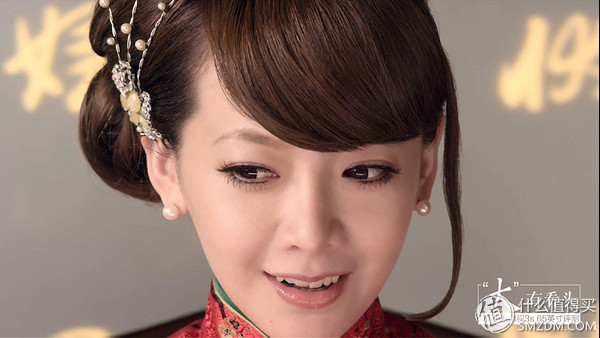
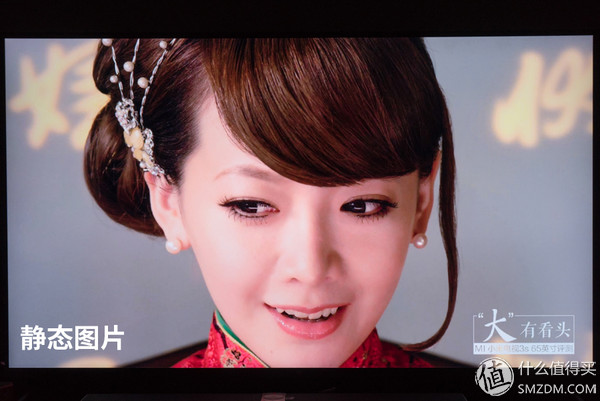
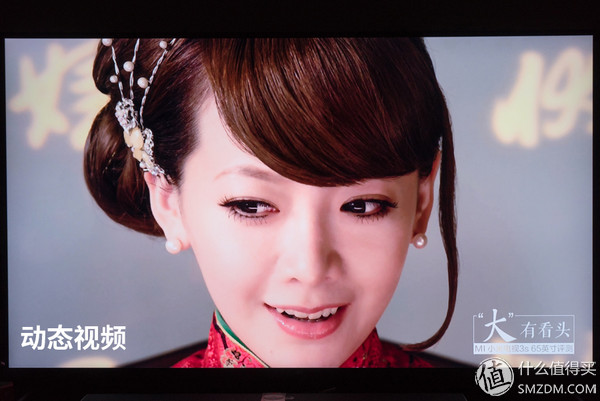
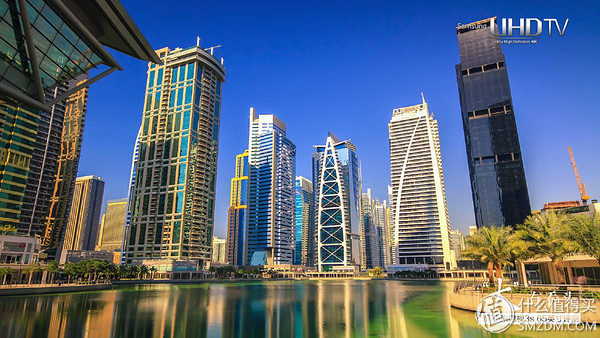
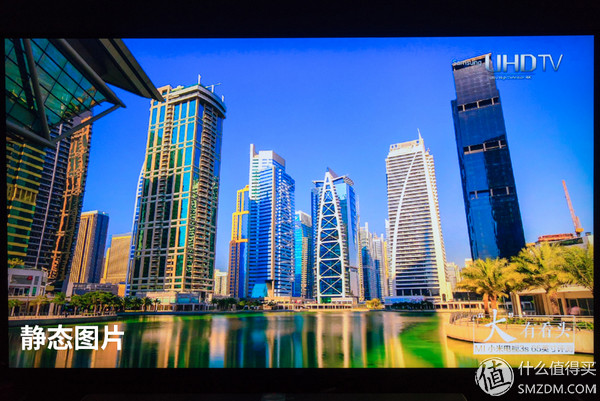
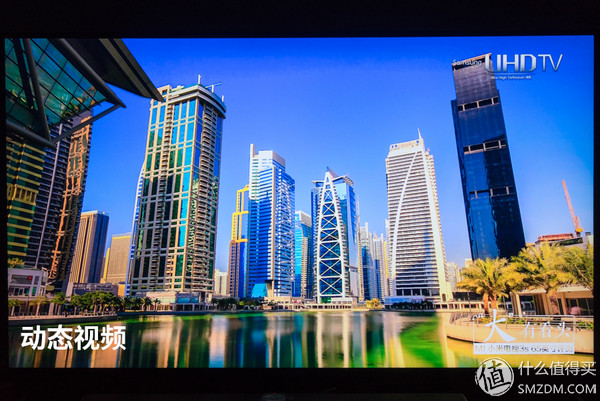
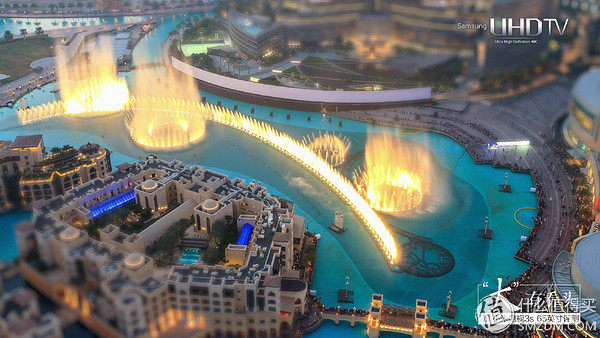
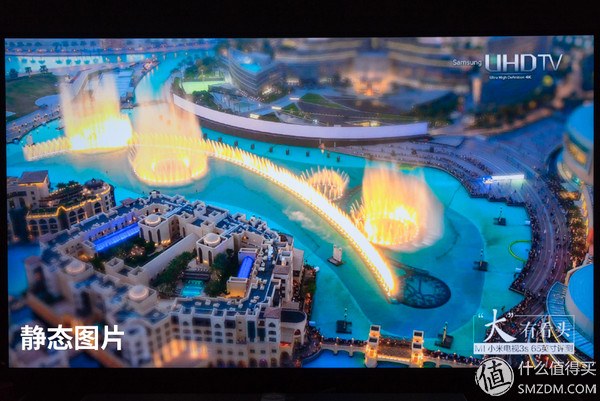
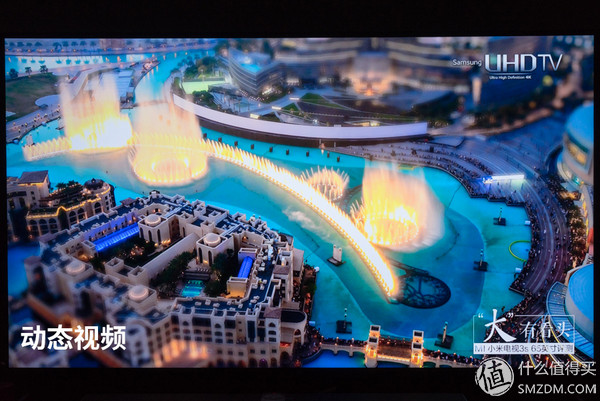 ç¬¬ä¸€å¼ ä¸ºåŽŸå›¾ï¼Œç¬¬äºŒå¼ æ˜¯é™æ€å›¾ç‰‡çš„å±æ‘„ï¼Œç¬¬ä¸‰å¼ æ˜¯åŠ¨æ€è§†å±å±æ‘„(为了æ‹æ‘„方便,所以直接把3å¼ æˆªå›¾åšæˆäº†è§†é¢‘进行æ’放æ‹æ‘„),大家å¯ä»¥æ¸…æ¥šçš„çœ‹åˆ°ï¼Œç›¸å¯¹åŽŸå›¾ï¼Œæ— è®ºæ˜¯é™æ€å›¾ç‰‡ï¼Œè¿˜æ˜¯åŠ¨æ€è§†é¢‘,色温上都会åä½Žä¸€äº›ï¼Œå¯¹æ¯”ä¹Ÿä¼šæœ‰æ‰€åŠ å¼ºï¼Œè€Œé™æ€å›¾ç‰‡ä¸ŽåŠ¨æ€è§†é¢‘想比,动æ€è§†é¢‘ç»è¿‡ç”»è´¨å¼•æ“Žè°ƒæ ¡ä¹‹åŽï¼Œå¯¹æ¯”ä¼šæ˜¾å¾—æ›´åŠ å¼ºçƒˆä¸€äº›ï¼Œä½†æ˜¯è°ƒæ ¡çš„ç¨‹åº¦å¹¶æ²¡æœ‰å¾ˆè¿‡åˆ†ï¼Œè¿™å‘³ç²¾æ·»çš„å¯ä»¥è¯´æ˜¯æ°åˆ°å¥½å¤„,ä¸ä¼šä½¿å¾—长时间观看时会觉得色彩过于饱和而眼生疲劳感。而é™æ€å›¾ç‰‡çš„è°ƒæ ¡å¯èƒ½æ˜¯ä¾èµ–ç³»ç»Ÿçš„è°ƒæ ¡ï¼Œè¿™éƒ¨åˆ†å¯èƒ½è·Ÿå°ç±³æ‰‹æœºçš„MIUIè°ƒæ ¡æ¯”è¾ƒæŽ¥è¿‘ä¸€äº›ï¼Œä¸»è¦è¿˜æ˜¯å¾€é«˜é¥±å’Œè¿™æ–¹é¢é 。
ç¬¬ä¸€å¼ ä¸ºåŽŸå›¾ï¼Œç¬¬äºŒå¼ æ˜¯é™æ€å›¾ç‰‡çš„å±æ‘„ï¼Œç¬¬ä¸‰å¼ æ˜¯åŠ¨æ€è§†å±å±æ‘„(为了æ‹æ‘„方便,所以直接把3å¼ æˆªå›¾åšæˆäº†è§†é¢‘进行æ’放æ‹æ‘„),大家å¯ä»¥æ¸…æ¥šçš„çœ‹åˆ°ï¼Œç›¸å¯¹åŽŸå›¾ï¼Œæ— è®ºæ˜¯é™æ€å›¾ç‰‡ï¼Œè¿˜æ˜¯åŠ¨æ€è§†é¢‘,色温上都会åä½Žä¸€äº›ï¼Œå¯¹æ¯”ä¹Ÿä¼šæœ‰æ‰€åŠ å¼ºï¼Œè€Œé™æ€å›¾ç‰‡ä¸ŽåŠ¨æ€è§†é¢‘想比,动æ€è§†é¢‘ç»è¿‡ç”»è´¨å¼•æ“Žè°ƒæ ¡ä¹‹åŽï¼Œå¯¹æ¯”ä¼šæ˜¾å¾—æ›´åŠ å¼ºçƒˆä¸€äº›ï¼Œä½†æ˜¯è°ƒæ ¡çš„ç¨‹åº¦å¹¶æ²¡æœ‰å¾ˆè¿‡åˆ†ï¼Œè¿™å‘³ç²¾æ·»çš„å¯ä»¥è¯´æ˜¯æ°åˆ°å¥½å¤„,ä¸ä¼šä½¿å¾—长时间观看时会觉得色彩过于饱和而眼生疲劳感。而é™æ€å›¾ç‰‡çš„è°ƒæ ¡å¯èƒ½æ˜¯ä¾èµ–ç³»ç»Ÿçš„è°ƒæ ¡ï¼Œè¿™éƒ¨åˆ†å¯èƒ½è·Ÿå°ç±³æ‰‹æœºçš„MIUIè°ƒæ ¡æ¯”è¾ƒæŽ¥è¿‘ä¸€äº›ï¼Œä¸»è¦è¿˜æ˜¯å¾€é«˜é¥±å’Œè¿™æ–¹é¢é 。
本æ¥è¿˜æƒ³åˆ©ç”¨èœ˜è››æ ¡è‰²æ¥çœ‹çœ‹å°ç±³ç”µè§†3S 65英寸使用的这å—SVAå±çš„实力,ä¸è¿‡ç”±äºŽHDMIè¾“å…¥è‡³ç”µè§†ä¼šä½¿ç”¨åˆ°ç”»è´¨å¼•æ“Žè¿›è¡Œè°ƒæ ¡ï¼Œè¿™å°±ä¼šå¯¼è‡´æ ¡è‰²æ—¶çš„æ¯ä¸€ä¸ªç”»é¢éƒ½ä¼šè¢«ç”»è´¨å¼•æ“Žå†ä¼˜åŒ–一次,所以测试的æ„义也就没有了,所以这一部分就暂缓,ç‰åˆ°å°ç±³å°†ç”»è´¨å¼•æ“Žéƒ¨åˆ†çš„功能å¯ä»¥è®¾ä¸ºå…³é—以åŽå†æµ‹è¯•ã€‚
关于整个电视的硬件部分的说明和测试就æ¤ç»“æŸï¼Œä¸‹é¢è¿›è¡Œé™æ€å›¾ç‰‡å’Œè§†é¢‘的实测(以下测试背光亮度å‡ä¸ºæœ€å¤§ï¼Œæ™ºèƒ½èƒŒå…‰é€‰é¡¹å‡ä¸ºå…³é—):
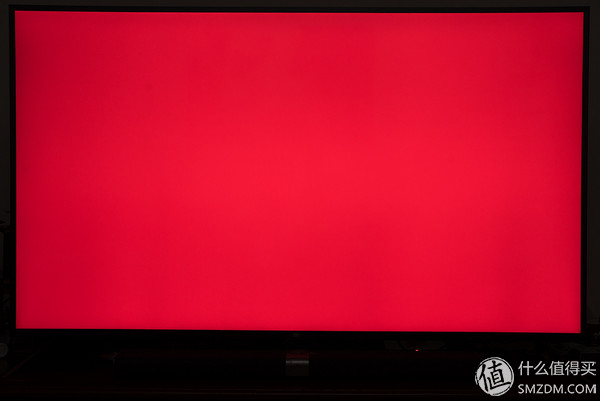
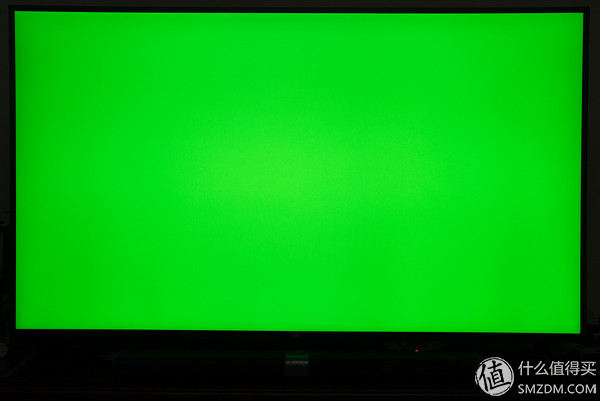
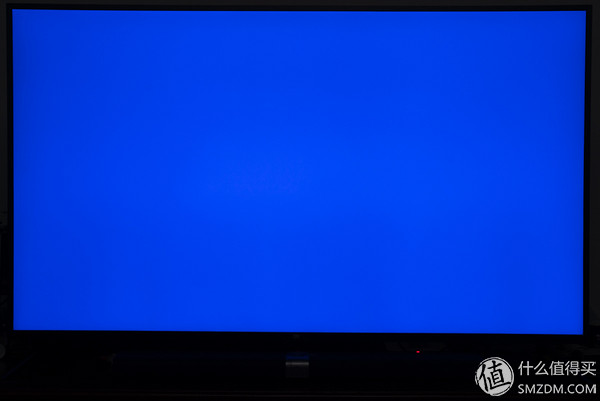
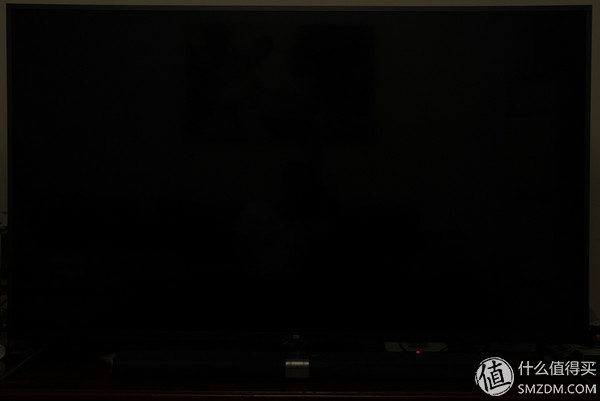
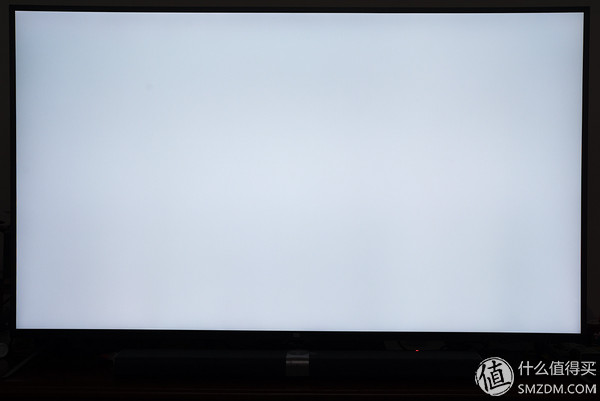
ä¸‰åŽŸè‰²å¤–åŠ ç™½è‰²é»‘è‰²çš„å±æ‘„照片,这个其实没啥看头,主è¦æ˜¯çœ‹å点啥的,ä¸è¿‡å›¾é‡Œé»‘色的å±æ‘„看起æ¥å¾ˆå®Œç¾Žï¼Œä½†å®žé™…上在夜晚关ç¯çš„情况下,åªè¦ä¸å¼€åŠ¨æ€èƒŒå…‰ï¼Œäº®åº¦æœ€å¤§çš„时候æ¼å…‰è¿˜æ˜¯éžå¸¸æ˜Žæ˜¾çš„,并且ä¸æ˜¯å››è§’边缘æ¼å…‰ï¼Œä¸å¤®éƒ¨åˆ†ä¹Ÿæœ‰ä¸€äº›åŒºåŸŸè¾ƒäº®ã€‚
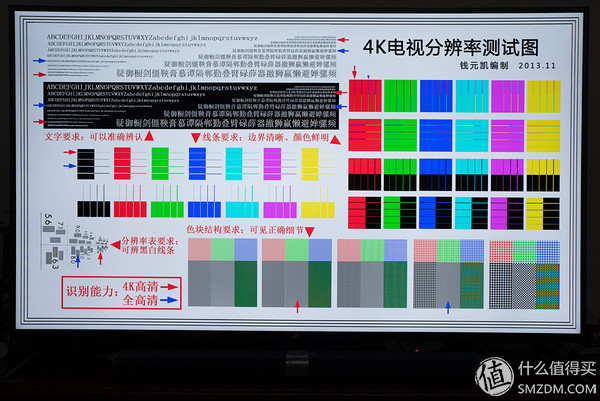
4k分辨率测试方é¢ä¾æ—§ä½¿ç”¨é’±å…ƒå‡¯æ•™æŽˆåˆ¶ä½œçš„“4K电视分辨率测试图â€ï¼Œè™½ç„¶æ¥¼ä¸»è¡¨ç¤ºè¿™å¼ 图åšçš„并ä¸æ˜¯å¾ˆå¥½ï¼Œç‰¹åˆ«æ˜¯æ–‡å—部分应用了防锯齿的渲染,å¯èƒ½ä¼šé€ æˆè¯¯è¯»çŽ°è±¡ã€‚ä¸è¿‡å°±è¿™å¼ 图æ¥è¯´ï¼Œå°ç±³çš„表现完全是优异的。(注:åªè¦å±å¹•ä½¿ç”¨å¸¸è§„RGBåƒç´ æŽ’åˆ—ï¼Œåˆ†è¾¨çŽ‡æ²¡æœ‰é€ å‡ã€‚è¿™å¼ å›¾éƒ½èƒ½è¿‡ï¼‰
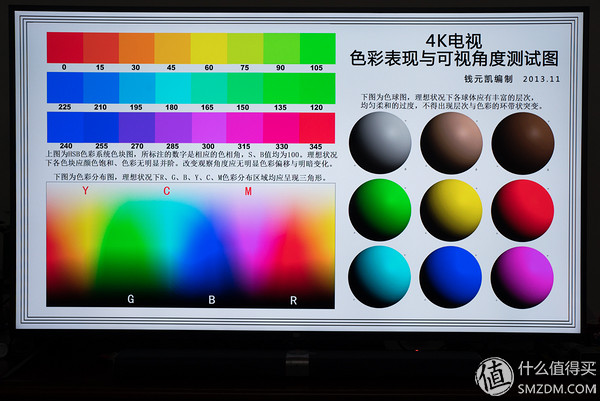
按照说明,å°ç±³ç”µè§†3s 65英寸版的色彩表现也是毋庸置疑的,得益于85% çš„NTSC色域,所以色彩显示的都éžå¸¸é¥±å’Œè‰³ä¸½ã€‚
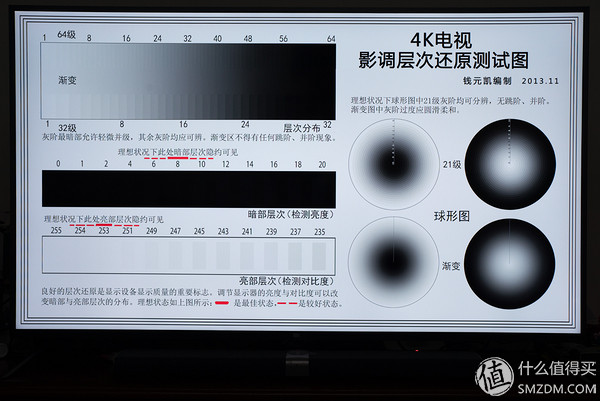
影调层次还原的测试,首先大家å¯ä»¥çœ‹åˆ°æ¸å˜åŒºåŸŸè¿‡åº¦å¹³æ»‘ã€‚å› ä¸ºå±æ‘„关系,大家看ä¸åˆ°çš„暗部层次和对比度我æ¥è¯´ä¸‹ï¼Œåœ¨æš—部层次ä¸ï¼Œå°ç±³èƒ½ä¾ç¨€è¾¨è®¤å‡º2区域,亮部层次253ã€‚å¯¹è¿™æ ·çš„è¡¨çŽ°ï¼Œæ¥¼ä¸»è¡¨ç¤ºéžå¸¸æ»¡æ„。

256级ç°é˜¶å›¾ï¼Œå®žé™…观感是从1到256都能从底色ä¸åˆ†è¾¨å‡ºæ¥ã€‚
é™æ€å›¾ç‰‡å¯¹æ¯”:

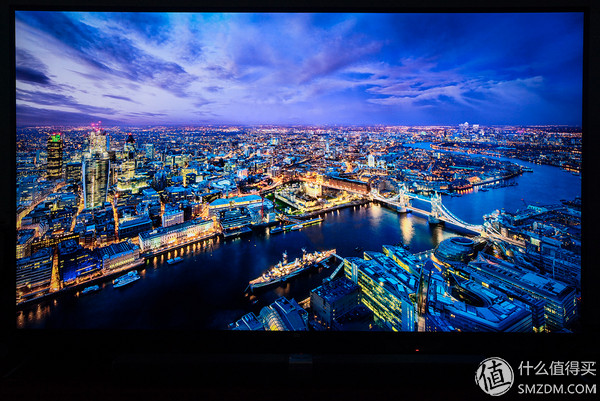

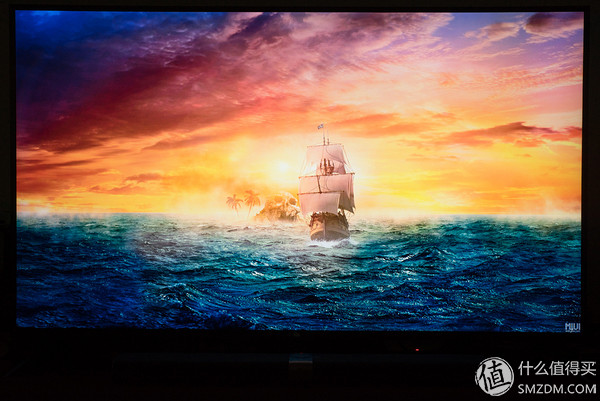

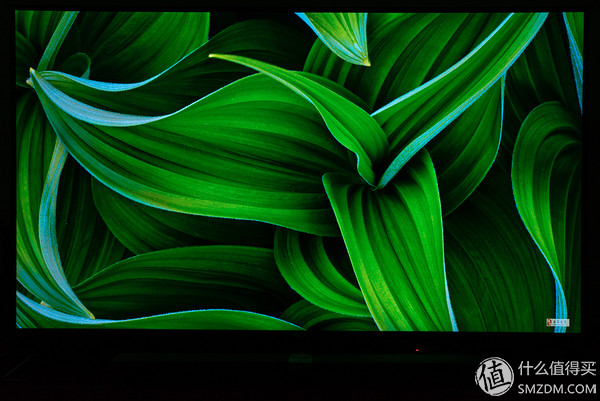

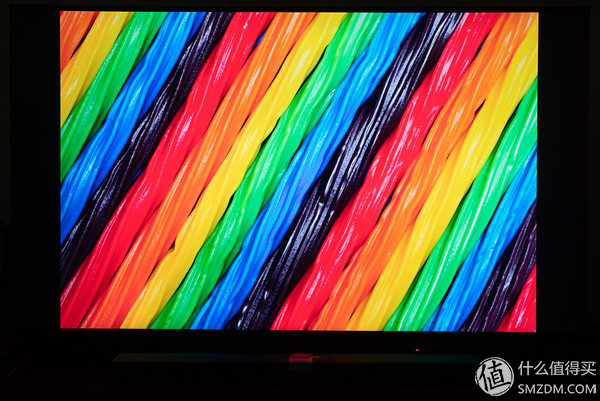

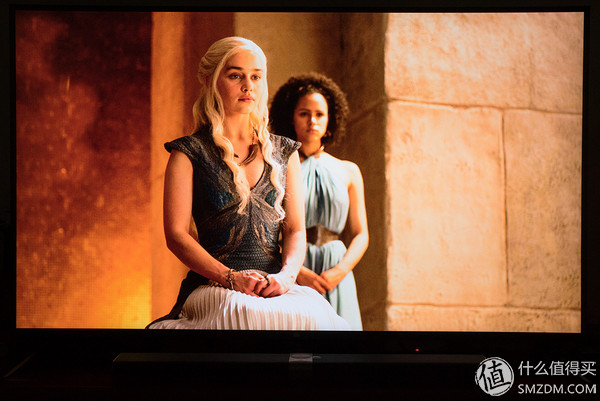



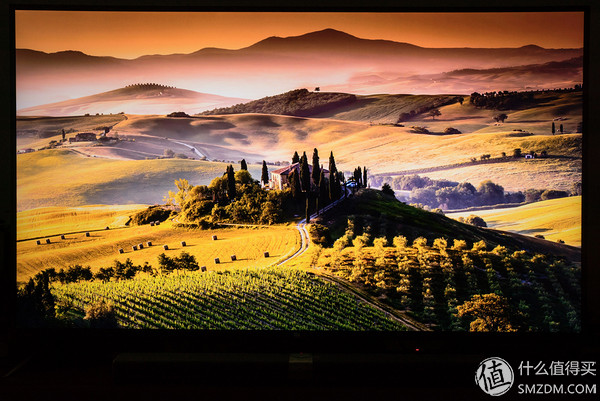 以上这组图片上图为原图,下图为å±æ‘„图。åˆçœ‹ä¹‹ä¸‹ï¼ŒåŽŸå›¾å’Œå±æ‘„图之间差异还是比较明显的。基本上å°ç±³ç”µè§†çš„色彩倾å‘都会少许å红一些,然åŽå¯¹æ¯”度也会拉大一些。这儿的差异并ä¸æ˜¯è¯´ç”µè§†å±å¹•çš„显示有多么的ä¸å‡†ç¡®ï¼Œè€Œæ˜¯å·¥ä½œç”¨çš„显示设备和娱ä¹ç”¨çš„显示设备的åˆå§‹ç›®çš„差异。一个是è¦å‡†ç¡®çš„还原色彩,å¦ä¸€ä¸ªåˆ™æ˜¯å¦‚何将影åƒæ˜¾ç¤ºçš„更为好看。关于这点,我相信大家也有认åŒï¼Œåœ¨ä¸Šé¢çš„对比ä¸ï¼Œæ— 疑是å±æ‘„的图片的色彩和对比更能å¸å¼•äººã€‚
以上这组图片上图为原图,下图为å±æ‘„图。åˆçœ‹ä¹‹ä¸‹ï¼ŒåŽŸå›¾å’Œå±æ‘„图之间差异还是比较明显的。基本上å°ç±³ç”µè§†çš„色彩倾å‘都会少许å红一些,然åŽå¯¹æ¯”度也会拉大一些。这儿的差异并ä¸æ˜¯è¯´ç”µè§†å±å¹•çš„显示有多么的ä¸å‡†ç¡®ï¼Œè€Œæ˜¯å·¥ä½œç”¨çš„显示设备和娱ä¹ç”¨çš„显示设备的åˆå§‹ç›®çš„差异。一个是è¦å‡†ç¡®çš„还原色彩,å¦ä¸€ä¸ªåˆ™æ˜¯å¦‚何将影åƒæ˜¾ç¤ºçš„更为好看。关于这点,我相信大家也有认åŒï¼Œåœ¨ä¸Šé¢çš„对比ä¸ï¼Œæ— 疑是å±æ‘„的图片的色彩和对比更能å¸å¼•äººã€‚
é™æ€æ–¹é¢å°±å±•ç¤ºåˆ°è¿™ï¼Œä¸‹é¢å°±å¼€å§‹è¿›è¡Œ4k视频实测了。我们先æ¥çœ‹ä¸‹å®‰å…”兔视频测试的视频兼容性测试:
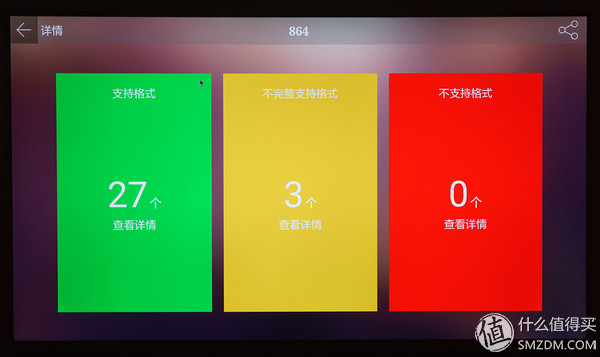
å…¶ä¸ä¸å®Œæ•´æ”¯æŒæ ¼å¼å¦‚下:
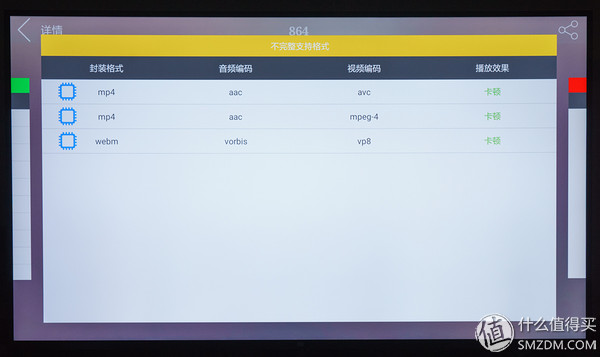
å…¶ä¸è¿™äº›æµ‹è¯•ç»“果使用截å±çš„效果会比å±æ‘„è¦å¥½çš„多,但是在å‡çº§ç³»ç»ŸåŽï¼Œæˆªå±åŠŸèƒ½å‡ºäº†äº›æ•…éšœï¼Œæ‰€ä»¥æ— å¥ˆåªèƒ½ç‰ºç‰²äº›æ•ˆæžœï¼ŒåŠ 大些自己的工作é‡äº†ã€‚从测试å¯ä»¥çœ‹å‡ºï¼Œå°ç±³ç”µè§†3S 65英寸版的视频兼容性还是éžå¸¸ä¸é”™çš„,而在实测过程ä¸ï¼Œé™¤äº†ä¸€éƒ¨4K 120FPS的影片被æç¤ºå¸§çŽ‡è¿‡é«˜æ— æ³•æ’放外,其余视频都能æµç•…æ’放。
ä¸è¿‡è¿™éƒ¨åˆ†è¦æ˜¯ç®€å•çš„ä¸‹è½½å‡ ä¸ªå®£ä¼ ç‰‡ï¼Œç»™å¤§å®¶æ‹å‡ å¼ å±å¹•çš„è¯ï¼Œç›¸ä¿¡æ˜¯æ²¡æœ‰ä»€ä¹ˆå¤§çš„说æœåŠ›çš„ã€‚æ‰€ä»¥æ¥¼ä¸»ç²¾æŒ‘ç»†é€‰äº†ä¸¤æ®µè§†é¢‘ï¼Œç¬¬ä¸€æ®µæ˜¯åŽ‹åŠ›æµ‹è¯•ï¼Œå› ä¸ºè¿™æ®µè§†é¢‘çš„ç 率高达100Mb/s,视频æ¥è‡ªå°æ¹¾ç²¾ç ”。
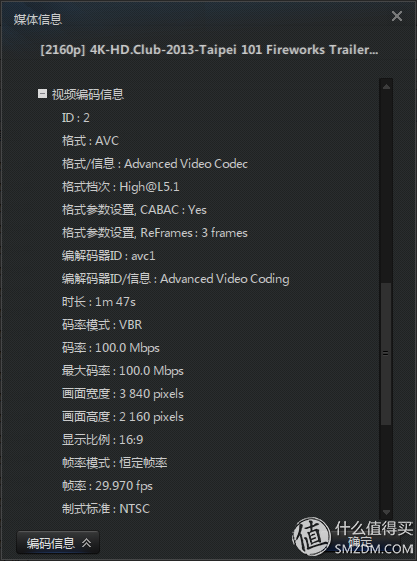
下é¢è¯·çœ‹å±æ‘„和截图对比:
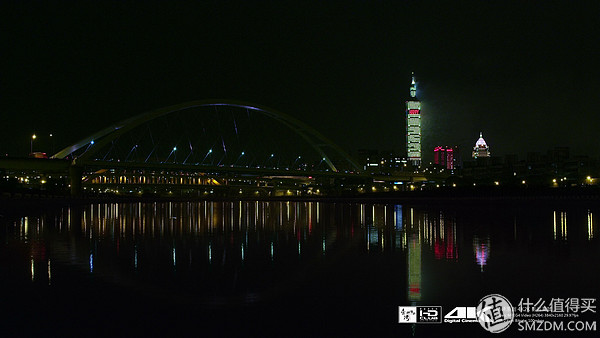
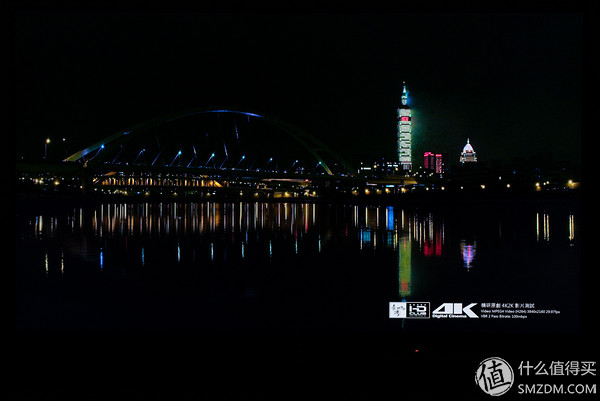
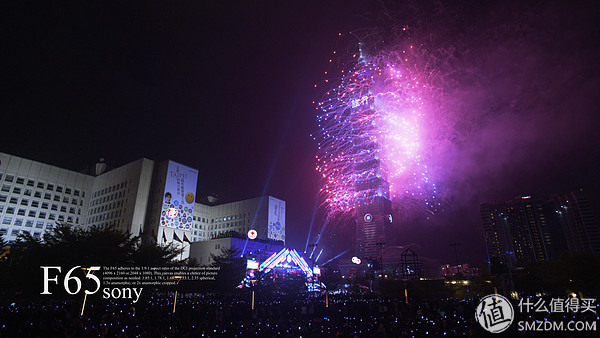
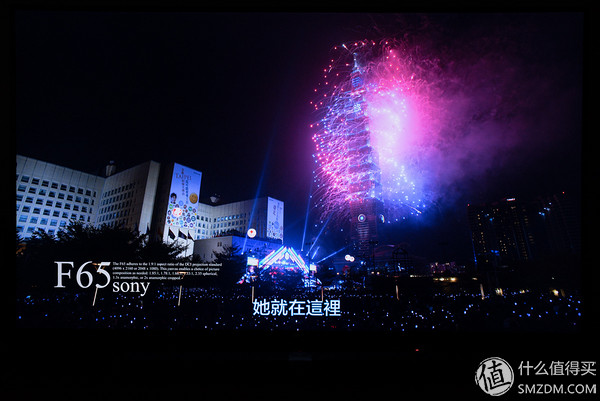

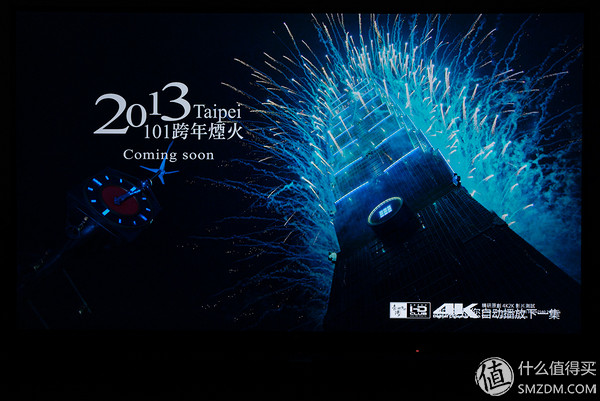
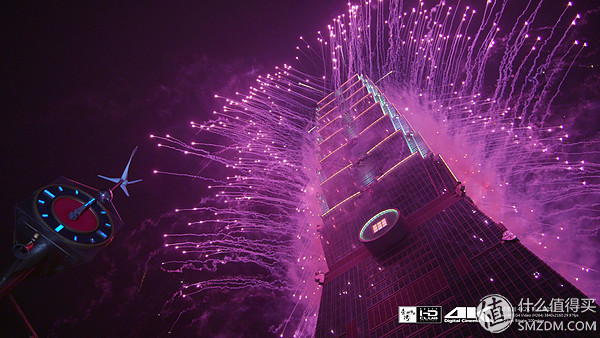

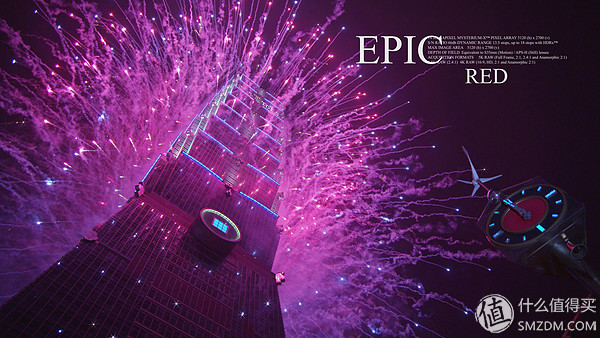
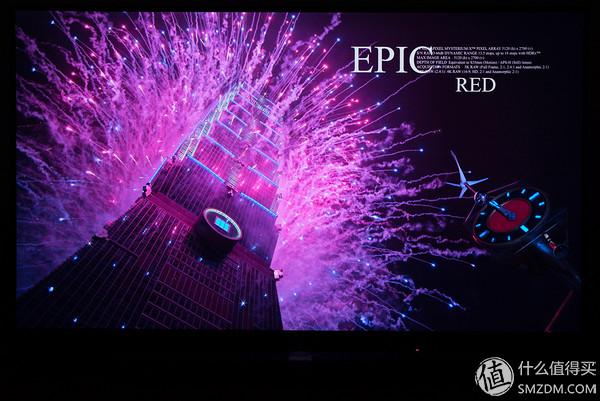

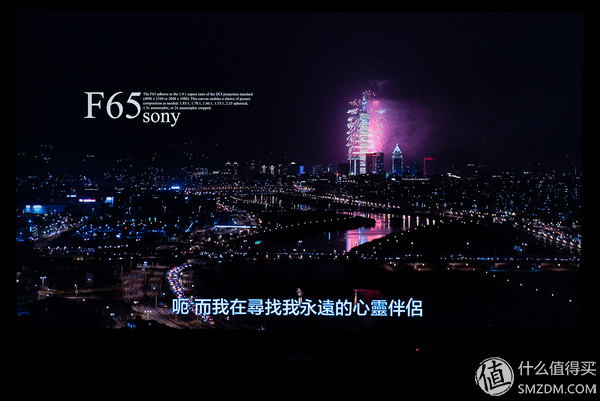
ä¾æ—§æ˜¯åŽŸå›¾-å±æ‘„的顺åºã€‚最åŽè¿™ä¸€å¼ å°ç±³èŽ«å给匹é…了ä¸çŸ¥é“啥玩æ„çš„å—幕,请大家忽略。首先说下æ’放情况,视频文件是通过USB接å£è¿žæŽ¥ä¼˜ç›˜è¿›è¡Œæ’放的,在æ’放过程ä¸ï¼Œå¿«è¿›ï¼ŒåŽé€€ï¼Œå‘¼å‡ºèœå•ç‰æ“作都éžå¸¸æµç•…,没有任何的å¡é¡¿ã€‚至于截图和å±æ‘„的色彩区别,个人觉得电视将色彩渲染的有些过了,但是ç¨é«˜çš„饱和度和对比度ä¾æ—§æ˜¯è®¨å–œçš„色彩。
第二段4K视频å·ç§°æ˜¯å…¨çƒé¦–部4K HDR测试视频《Into the Cave of Wonders》,ä¸è¿‡è¿™æ®µç‰‡å没有SDR版的å¯ä»¥åšå¯¹æ¯”,所以就当是4K演示片看下å§ã€‚




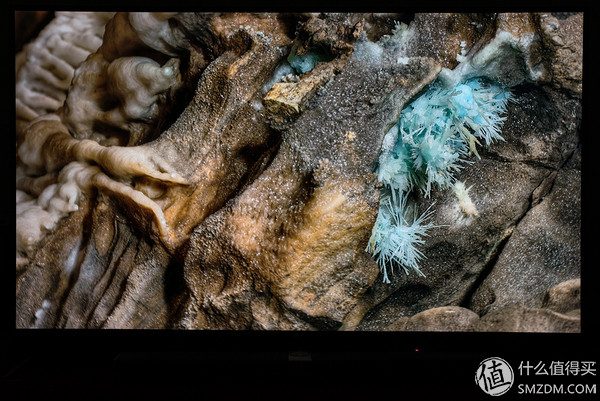
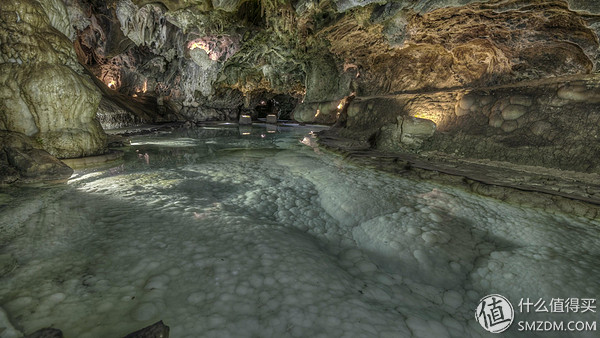
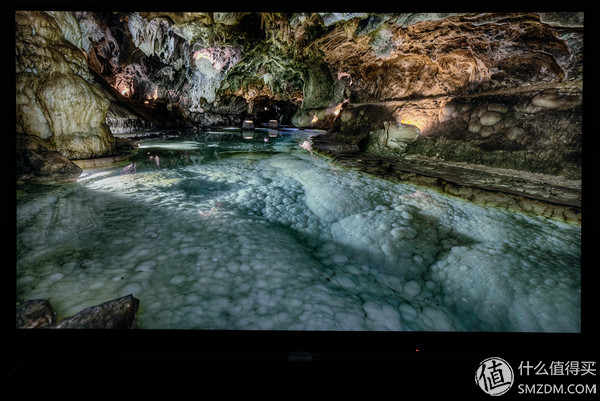

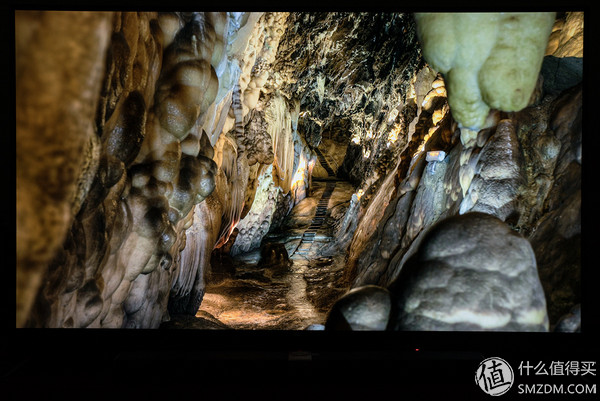

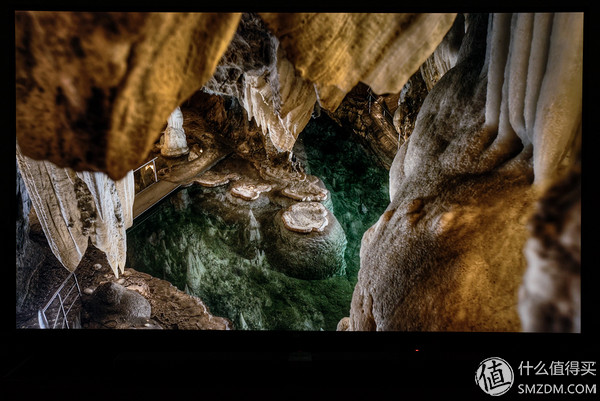


第三段4K视频自然ä¸èƒ½å…俗的走上套路,美女与烤é¸ï¼š
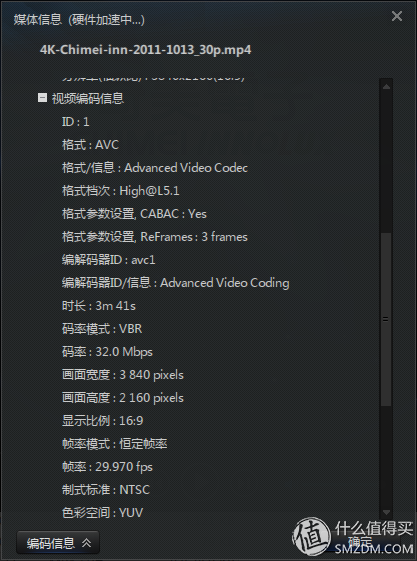





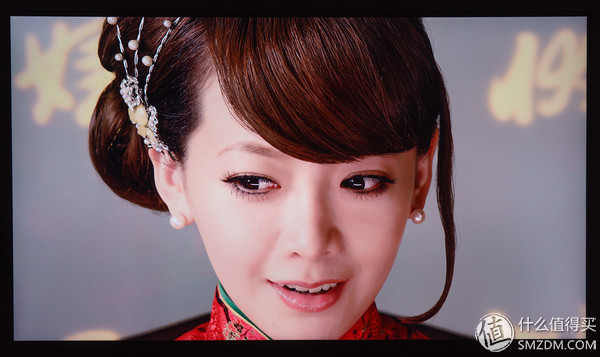


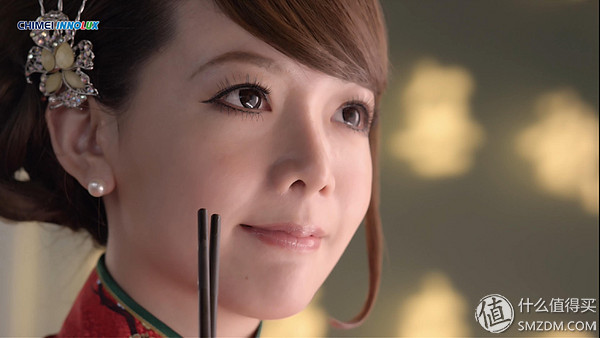
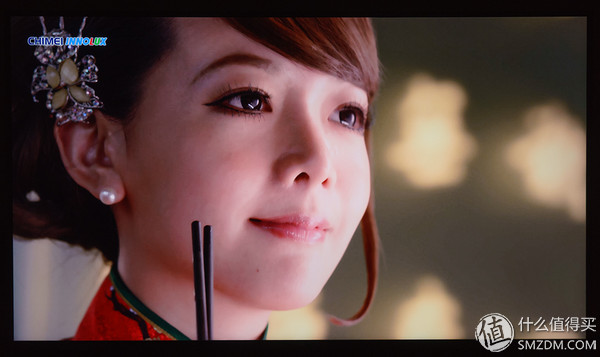
最åŽå†æ¥çœ‹éƒ¨ä¸‰æ˜Ÿç”µè§†çš„å®£ä¼ ç‰‡â€”â€”è¿ªæ‹œï¼š
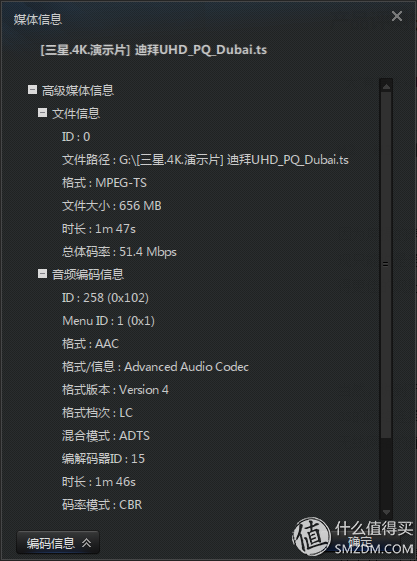
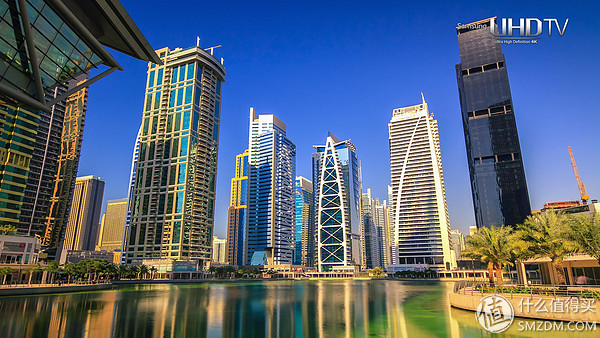
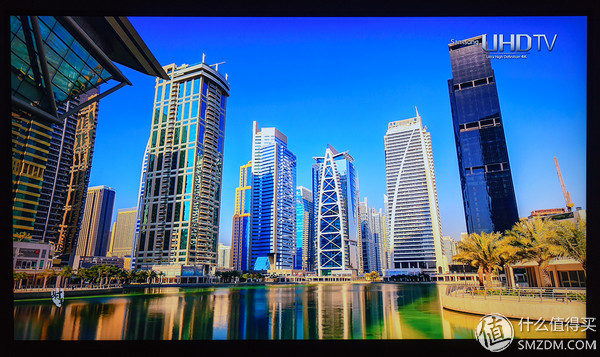
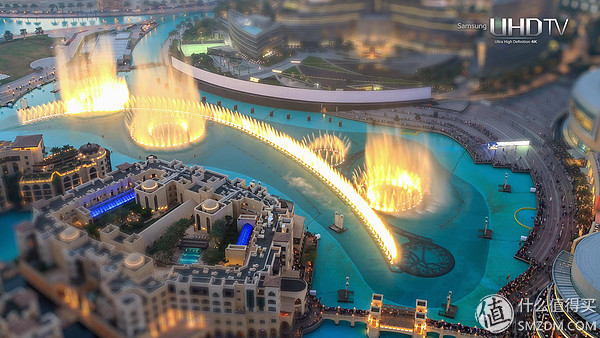
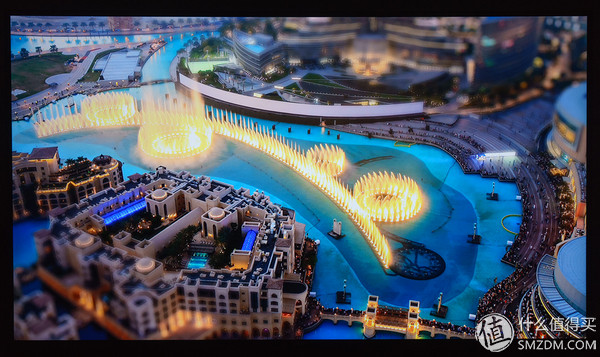

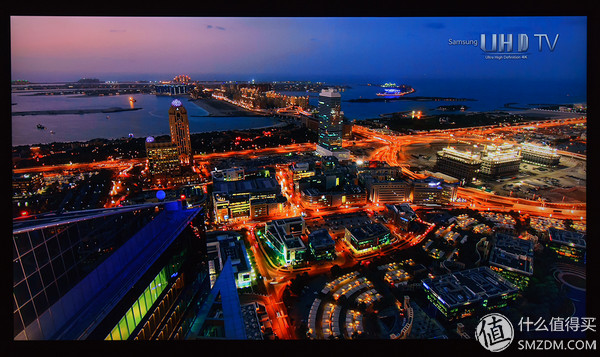

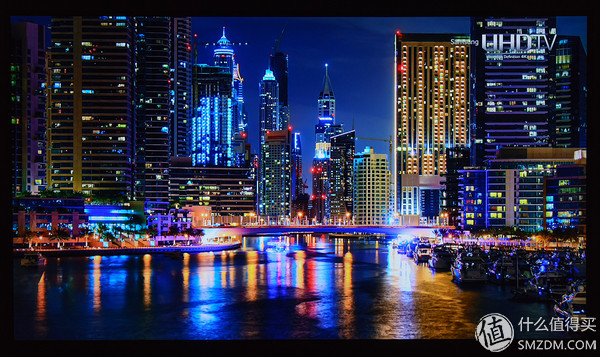

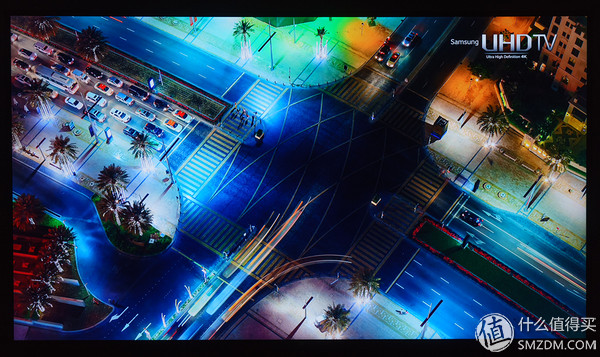
本æ¥è¿˜æƒ³è¿›è¡Œ1080P/720P/åœ¨çº¿è§†é¢‘çš„å¯¹æ¯”ï¼Œä½†æ˜¯å› ä¸ºå±æ‘„的表现力还是有é™ï¼Œæ‰€ä»¥é€šè¿‡å±æ‘„表现的差异ä¸æ˜¯å¾ˆæ˜Žæ˜¾ï¼Œæ‰€ä»¥å°±ä¸æ”¾å›¾äº†ã€‚基本上在线视频在65寸4K分辨率上的表现åªèƒ½è¯´æ˜¯å·®å¼ºäººæ„,ä¸è¿‡çœ‹çœ‹å›½äº§NC剧是够了。至于院线大片啥的,还是下个1080P的资æºæ¥æ’放,获得更佳的观影体验。
写到这,已ç»è½»æ¾ç ´ä¸‡å—了,从上往下读到这的相信也都是真爱了。所以åŽé¢çš„内容我会挑一些é‡è¦çš„说,ä¸æ˜¯å¾ˆé‡è¦çš„使用就一笔带过了,相信其他一起å‚与æ¤æ¬¡ä¼—测的值å‹ä¼šå†™çš„比较详细。而所谓é‡è¦çš„……基本都是一些系统ä¸åˆç†çš„地方和所é‡åˆ°çš„问题了。
å°ç±³ç”µè§†3S 65英寸版采用的是基于安å“6.0.1çš„MIUI系统,这一代的MIUI电视系统与之å‰æœ€å¤§çš„区别就是引入了PatchWall 拼图墙和瀑布æµï¼š
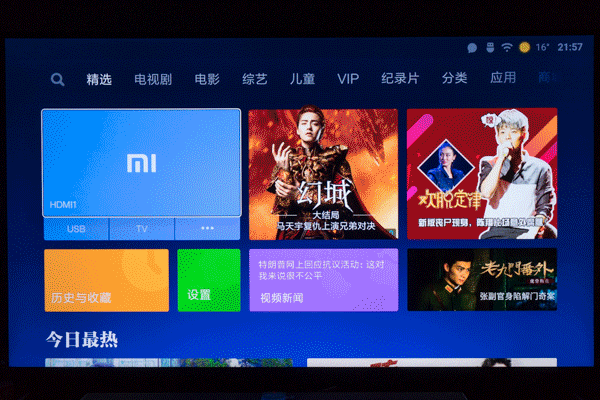
他的特点是翻ä¸åˆ°å¤´â€¦â€¦ï¼Œåœ¨æ— èŠæ²¡äº‹åšçš„时候倒是å¯ä»¥ä¸€ç›´ç¿»ä¸‹åŽ»â€¦â€¦ã€‚å½“ç„¶ï¼Œè¿™æ ·çš„æ‹¼å›¾å¢™å’Œç€‘å¸ƒæµæ˜¾ç„¶ä¸æ˜¯ä¸ºäº†è®©å¤§å®¶æ— èŠçš„时候一直按ç€é¥æŽ§å™¨çœ‹ç€ç”»é¢ä¸åœç¿»æ»šçš„,所以在å°ç±³ç”µè§†3Sä¸Šç‰¹åˆ«åŠ å…¥äº†ä¸€ä¸ªç‰¹æ€§â€œMi Birainâ€

按照å°ç±³ç”µè§†çš„介ç»ï¼Œâ€œMi Birainâ€é€šè¿‡å¼ºå¤§çš„åŽå°è¿ç®—,PatchWall èƒ½æ·±åº¦äº†è§£ä¸€å®¶äººçš„è§‚å½±ä¹ æƒ¯ï¼Œ 并把一家人喜欢的内容推é€åˆ°é¦–页。

这个其实和现在网站上的广告,以åŠè´ç‰©ç½‘ç«™ä¸Šçš„çŒœä½ å–œæ¬¢ç›¸åŒï¼ŒåŸºæœ¬å°±æ˜¯æ ¹æ®ä½ 的观看记录æ¥äº§ç”Ÿå†…容推é€ï¼Œè‡³äºŽæ‰€è¯´çš„å¯ä»¥åƒäººåƒé¢ï¼Œä¸åŒäººçœ‹ç”µè§†æœ‰ä¸åŒçš„推é€ï¼Œé‚£åŸºæœ¬æ˜¯æ ¹æ®ä¸åŒæ—¶æ®µè§‚看ä¸åŒå†…容æ¥åˆ†è¾¨ä½¿ç”¨è€…æ˜¯ä¸€ä¸ªè¿˜æ˜¯å¤šä¸ªï¼Œä¾‹å¦‚ä½ æ¯æ™š6点给家里的å°å®è´æ”¾åŠ¨ç”»ç‰‡ï¼Œæ¯å¤©8点è€å©†çœ‹å›½äº§NC剧,æ¯å¤©10点自己看美剧或电影的è¯ï¼Œæ—¶é—´ä¸€é•¿ï¼Œç”µè§†å°±ä¼šæŠŠè¿™ä¸ªä½¿ç”¨ä¹ 惯记录下æ¥ï¼Œç‰åˆ°æ¯å¤©6点开电视的时候,首页就会推é€å„¿ç«¥èŠ‚目,到了8点就会推é€å„ç§NC剧,而到了10点,就会推é€å¥½èŽ±åžå¤§ç‰‡äº†ã€‚当然,这一切使用的å‰æ是必须使用å°ç±³ç”µè§†3Sè‡ªå¸¦çš„å†…å®¹ï¼Œä½ è¦æ˜¯æ‰“开一个电视猫啥的,他就没法进行记录了。所以这个设计的åˆè¡·æ˜¯éžå¸¸ç¾Žå¥½çš„,但是在实际应用ä¸ï¼Œé¦–å…ˆä½ è¦ç¡®ä¿ä½ 想观看的内容å°ç±³ç”µè§†æœ¬èº«éƒ½æœ‰æ‰èƒ½ä½¿ç”¨ï¼Œè€Œæˆ‘ç»å¸¸çœ‹çš„美剧,家里领导ç»å¸¸çœ‹çš„æŸäº›VIP剧(PAD上买了会员但是出于æŸäº›åŽŸå› 与电视并ä¸é€šç”¨ï¼Œæ‰€ä»¥åªèƒ½æŠ•å±è§‚看),都ä¸åœ¨è‡ªæœ‰å†…容里。所以基本上这个功能差ä¸å¤šå°±æ˜¯ä¸ªæ‘†è®¾äº†ã€‚ä¸è¿‡å°ç±³ç”µè§†ç›®å‰çš„片æºè¿˜æ˜¯ç®—得上éžå¸¸ä¸°å¯Œçš„ï¼Œä¼šå‘˜ä»·æ ¼æ›´æ˜¯ä¸è´µï¼Œéšæ–°æœºè´ä¹°æ›´åªéœ€è¦199元一年。而众测的电视则享å—ä¸åˆ°æ¤å¾…é‡ï¼Œè€Œç›®å‰èŒå®è¿˜å°ï¼Œå®¶é‡Œå¼€ç”µè§†çš„时间也比较少,所以我就先ä¸ä¹°äº†ã€‚
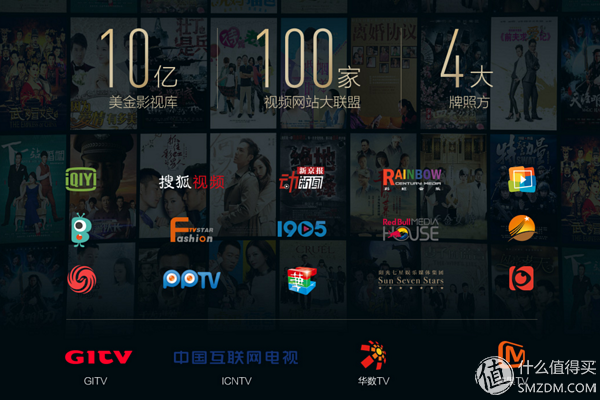
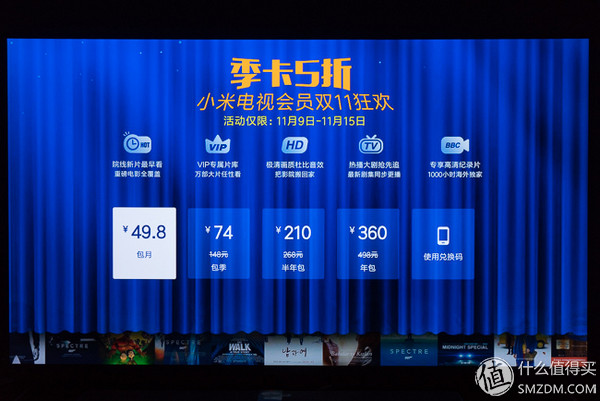
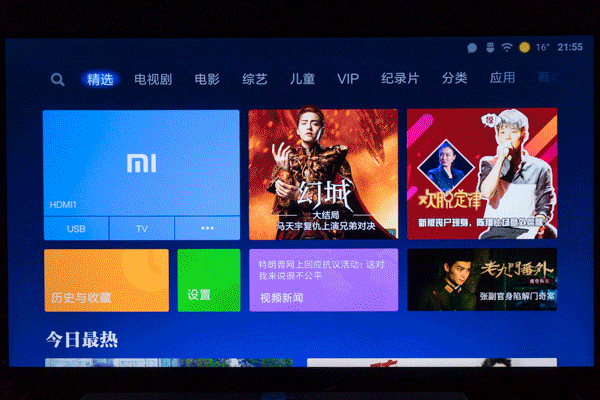
ä¸Šå›¾ä¸ºç³»ç»Ÿçš„å‡ ä¸ªæ 目分类动图,å¯ä»¥çœ‹åˆ°åˆ†çš„还是挺详细的,而之å‰å¹¿ä¸ºè¯Ÿç—…的广告多的毛病,也被改善了,除了系统æ¡å¶å°”会è§å¹¿å‘Šå¤–ï¼Œç³»ç»Ÿå…¶ä»–åœ°æ–¹å‡ ä¹Žå‡çœ‹ä¸åˆ°å¹¿å‘Šï¼ˆå¼€æœºä¹Ÿæ²¡æœ‰ï¼‰ã€‚米家自己产å“çš„å¹¿å‘Šå‡ ä¹Žéƒ½è¢«é›†ä¸åœ¨å•†åŸŽå’Œå±ä¿é‡Œé¢äº†ï¼Œè¿™ä¸ªè¦ç»™ä¸ªå¤§å¤§çš„好评。
在桌é¢çŠ¶æ€ä¸‹ï¼ŒæŒ‰é¥æŽ§å™¨å‘上按钮就å¯ä»¥å‘¼å‡ºå¿«æ·èœå•ï¼š
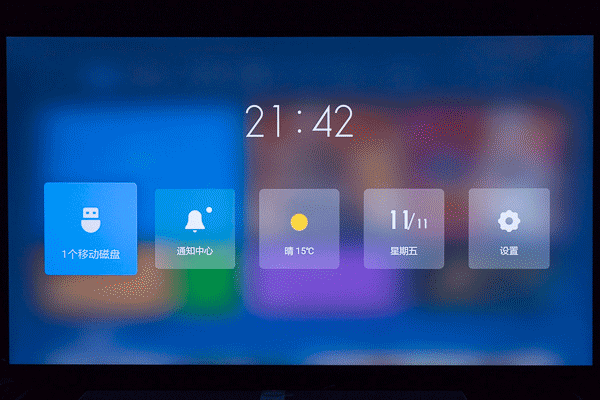
里é¢æœ‰ç§»åŠ¨ç£ç›˜/通知/天气/日历/设置5项,其ä¸ç§»åŠ¨ç£ç›˜éœ€è¦ä½ æ’å…¥ç£ç›˜ä¹‹åŽæ‰ä¼šå‡ºçŽ°ï¼Œé€šçŸ¥é‡Œé¢åŸºæœ¬å°±æ˜¯å¹¿å‘Šå†…容了,天气和日历没啥好说的。点击移动ç£ç›˜åˆ™æ˜¯ä¼šæ‰“开高清æ’放器这个自带APP:
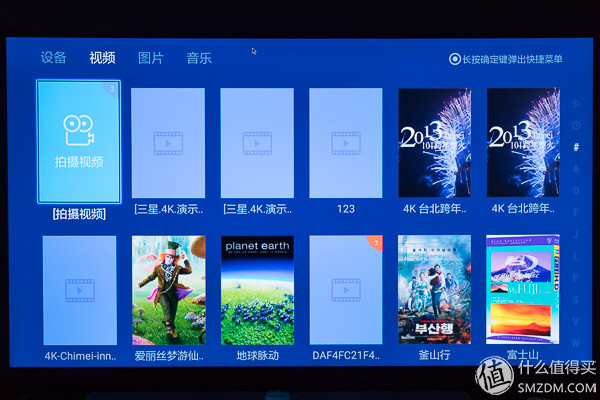
高清æ’放器这个APP使用起æ¥éžå¸¸ä¸é”™ï¼Œä¼šè‡ªåŠ¨ä¸ºç£ç›˜/å±€åŸŸç½‘å†…çš„å½±ç‰‡æ·»åŠ ç…§ç‰‡å°é¢æ–¹ä¾¿æµè§ˆï¼Œå¹¶ä¸”在æ’放时å¯ä»¥è‡ªåŠ¨ä»Žå°„手网下载å—幕并对å—幕进行颜色/大å°/ä½ç½®ç‰æµ‹è¯•ï¼Œä¹Ÿä¼šè‡ªåŠ¨å‘çŽ°å¹¶æ·»åŠ åŒä¸€ç½‘段内的SMB共享文件夹:
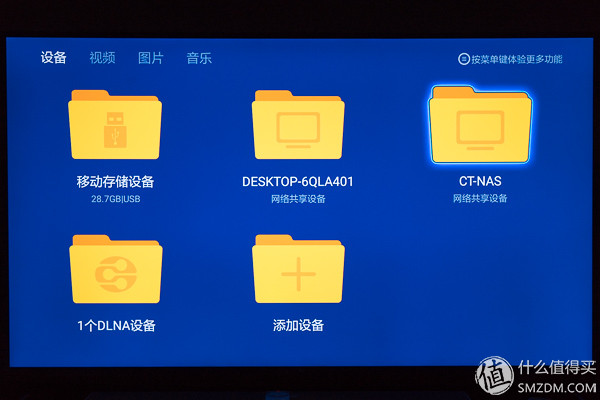
没有特别è¦æ±‚çš„è¯ï¼ŒåŸºæœ¬ä¸Šè¿™ä¸ªæ’放器足以胜任该电视所有的媒体æ’放需求。
而按两下主页按钮则会呼出任务管ç†å™¨è¿›è¡Œç¨‹åºé—´çš„切æ¢ï¼Œæ¤æ—¶é€‰ä¸æƒ³è¦å…³é—的程åºï¼ŒæŒ‰å‘上按钮就能将其关é—,也能选ä¸æ¸…空全部将所有程åºéƒ½æ¸…空:
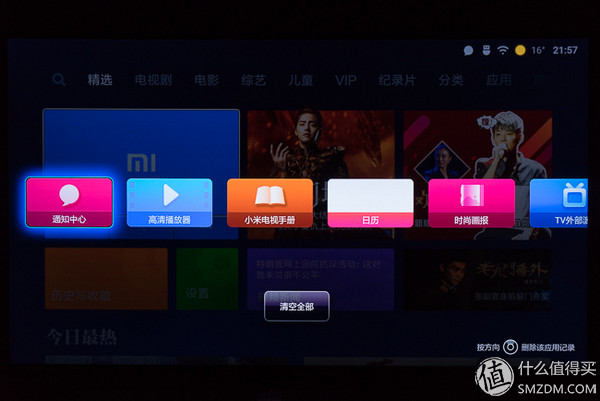
而按关机按钮,则会呼出关机选项:
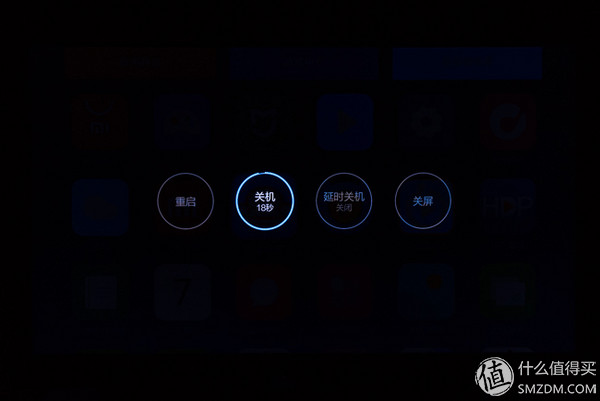
默认是倒计时20秒åŽå…³æœºï¼ŒåŒæ—¶ä¹Ÿå¯ä»¥é€‰æ‹©é‡å¯ç”µè§†ï¼Œæˆ–是延时关机(15/30/60/120分钟)和关å±ã€‚å…³å±åŠŸèƒ½åˆ™æ˜¯å¯ä»¥åœ¨ä½¿ç”¨éŸ³ä¹ç±»APP或是其他设备使用è“牙æ¥é€šè¿‡ç”µè§†ä¸»æœºæ’放音ä¹çš„时候使用。
下é¢è¯´ä¸‹è®¾ç½®ï¼š
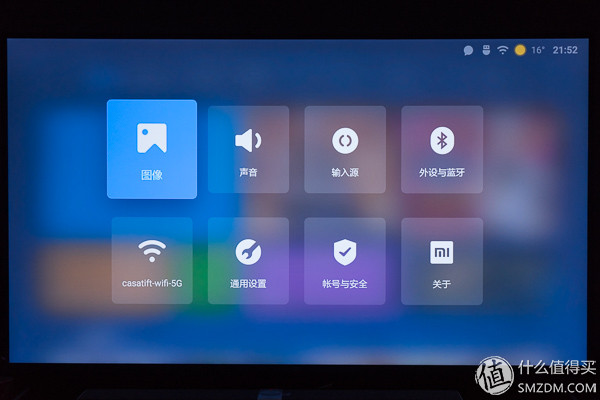
在设置的一级èœå•é‡Œä¸€å…±æœ‰8个选项,这里主è¦è¦è¯´çš„就是图åƒäº†ï¼Œè¿™ä¸ªä¹Ÿæ˜¯æ§½ç‚¹æœ€å¤§çš„一个设置:
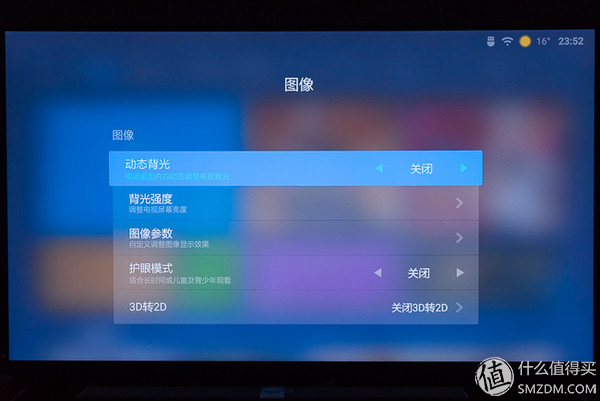
å…¶ä¸åŠ¨æ€èƒŒå…‰å’ŒèƒŒå…‰å¼ºåº¦éƒ½æ²¡å•¥é—®é¢˜ï¼Œä½†æ˜¯å½“ä½ è¦è®¾ç½®å›¾åƒå‚数的时候,这时系统会返回到桌é¢è®©ä½ 预览设置效果……但之å‰è¯´è¿‡ï¼Œå›¾åƒå‚数里é¢è°ƒæ•´çš„设置是对画质引擎的设置,而桌é¢æ˜¾ç¤ºæ˜¯ä¸ç»è¿‡ç”»è´¨å¼•æ“Žå¤„ç†çš„ï¼Œæ‰€ä»¥å½“ä½ è®¾ç½®çš„æ—¶å€™ï¼Œæ¡Œé¢çš„å˜åŒ–åªæœ‰è‰²æ¸©è¿™ä¸€å—能够直接表现:
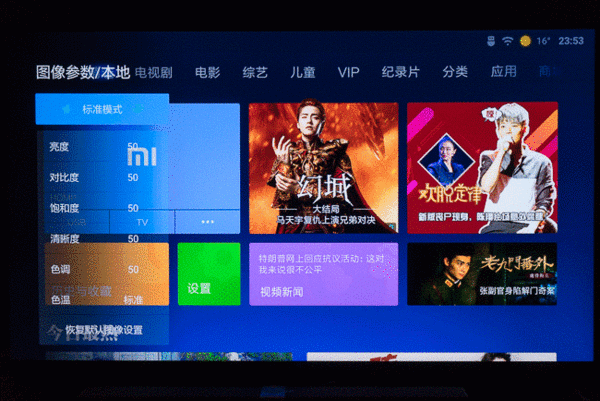
而大家å¯ä»¥æ¸…楚的看到,当在最åŽä¸€ä¸ªç”»é¢ï¼Œæˆ‘将画é¢é¥±å’Œåº¦è®¾ç½®æˆäº†3,但是桌é¢èƒŒæ™¯ä¾æ—§è‰²å½©é²œè‰³ï¼Œä¸æ¯«ä¸å—å½±å“。而下é¢ä¸€æ®µåˆ™æ˜¯å‘大家展示图åƒå‚数的真æ£æ‰“开方å¼ï¼ˆæ³¨ï¼Œåœ¨æ’放视频时按èœå•é”®å³å¯å‘¼å‡ºå›¾åƒå‚数选项):
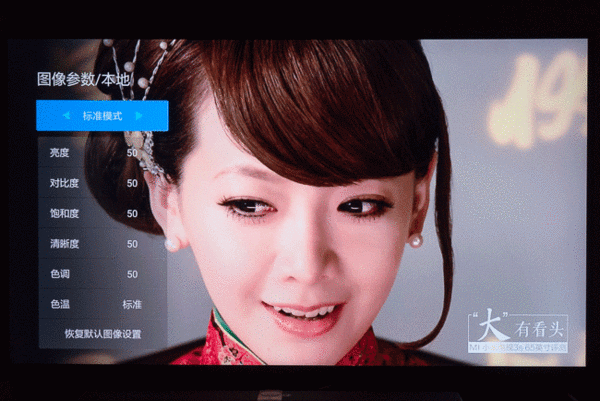
当然,åšæˆäº†åŠ¨å›¾ï¼Œå¯èƒ½å‡ ç§æ¨¡å¼è¡¨çŽ°çš„差异ä¸æ˜¯å¾ˆæ˜Žæ˜¾ï¼Œä½†æ˜¯æœ€ç»ˆé¥±å’Œåº¦è®¾ä¸º3的情况下,画é¢åº”该是接近黑白了æ‰æ˜¯â€¦â€¦ï¼Œæ‰€ä»¥è¿™å„¿ç»§ç»å‘å°ç±³æ个æ„è§ï¼Œåœ¨ç³»ç»Ÿå‘¼å‡ºå›¾åƒå‚数设置的时候,能ä¸èƒ½ä¸è¦è¿”回桌é¢æ¥å±•ç¤ºè®¾ç½®æ•ˆæžœï¼Œåº”该是打开一部演示视频æ¥è¡¨çŽ°å„ç§è®¾ç½®å¯¹ç”»é¢çš„å½±å“æ‰æ˜¯ã€‚
ä¸çŸ¥é“ä»€ä¹ˆæ—¶å€™å¼€å§‹ï¼Œæ— è®ºæ˜¯æ˜¾ç¤ºå™¨è¿˜æ˜¯ç”µè§†å±å¹•ï¼Œéƒ½å¤šå‡ºäº†ä¸€ä¸ªæŠ¤çœ¼æ¨¡å¼ï¼Œå·ç§°æ»¤è“光,å¯ä»¥ä¿æŠ¤è§†åŠ›ï¼Œä¸è¿‡æ¥¼ä¸»è§‰å¾—,让å°æœ‹å‹çœ‹æ•´å±é»„黄的画é¢ï¼Œæˆ‘倒是å®å¯ä¸ç»™å¥¹çœ‹æ‰æ˜¯ï¼Œè¿™æ ·çš„ç”»é¢çœ‹ä¹…了,会影å“她对世界的认识的å§ï¼ˆå½“然,这个纯属大家个人喜好的范畴):
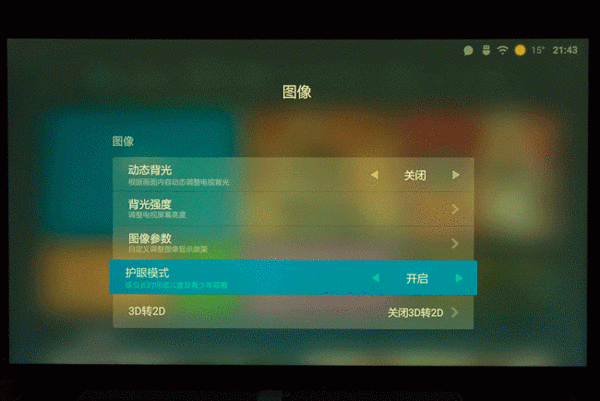
设置里é¢é™¤äº†å›¾åƒè¿™ä¸€å‚数外,å¦å¤–一个值得一æ的是外设与è“牙的设置:
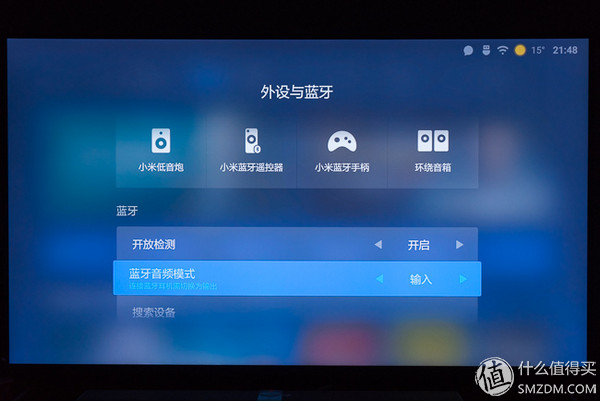
在这里é¢å¯ä»¥å°†è“牙音频模å¼è®¾ç½®ä¸ºè¾“入或输出,其ä¸è¾“入则是å¯ä»¥å°†å…¶ä»–设备的音频连入å°ç±³ç”µè§†ï¼Œä½¿ç”¨ç”µè§†çš„音箱æ¥è¿›è¡Œæ’放,输出则是将电视的音频通过è“牙å‘é€è‡³å…¶ä»–çš„è“牙音箱æ’放。ä¸è¿‡æ¥¼ä¸»è§‰å¾—å°ç±³ç”µè§†3s 65英寸版自带的主机音箱已ç»ç®—是ä¸é”™äº†ï¼Œæ‰€ä»¥ä¹Ÿæ²¡å•¥å¿…è¦å†è¿žæŽ¥å…¶ä»–çš„è“牙音箱æ¥è¿›è¡Œæ’
Cosmetic Instrument Vibration Motor
Cosmetic Instrument Vibration Motor Mainly used in cosmetic instrument, such as instrument, cleansing essence introducing vibration meter, wash a face, facial massage, hairdressing instrument, etc.
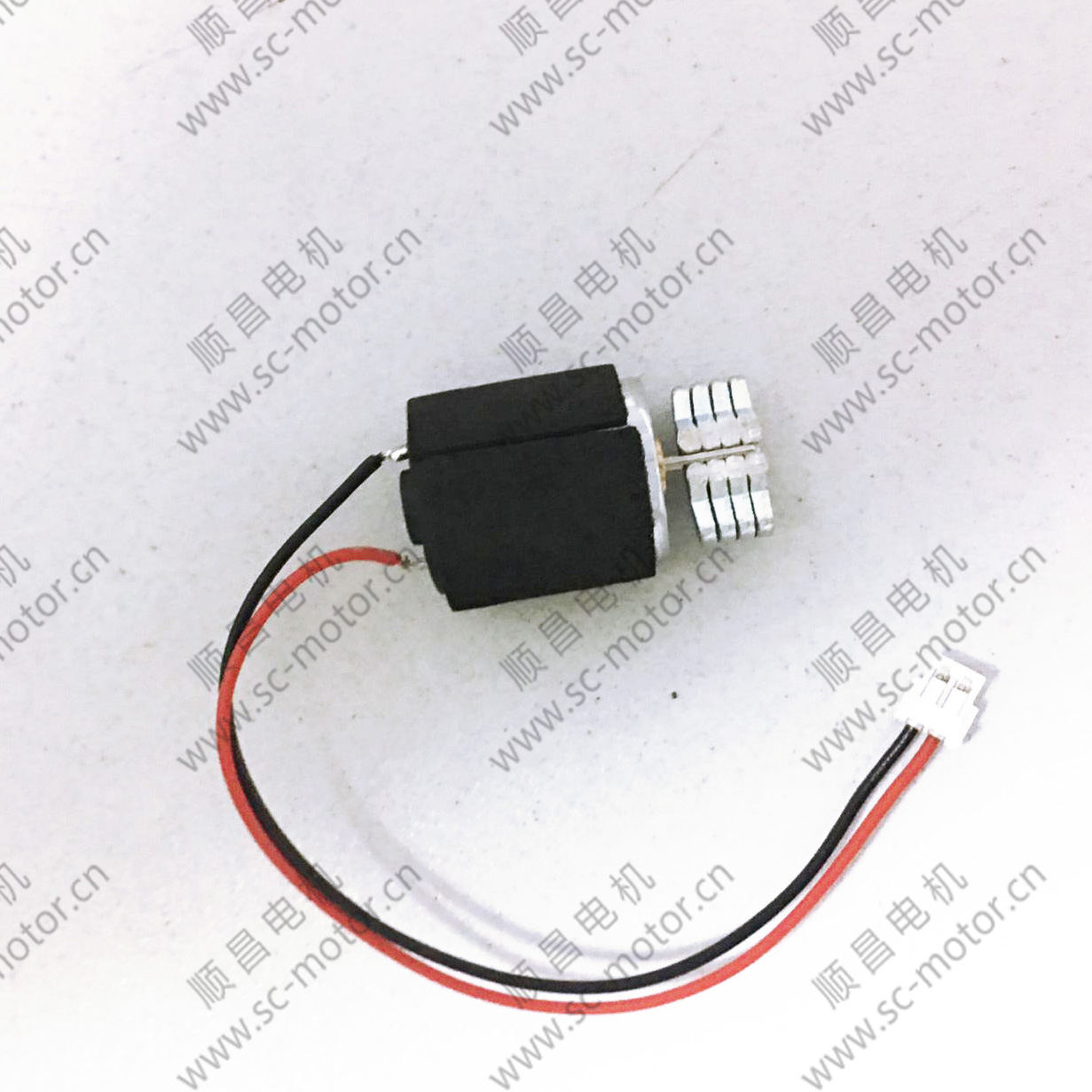
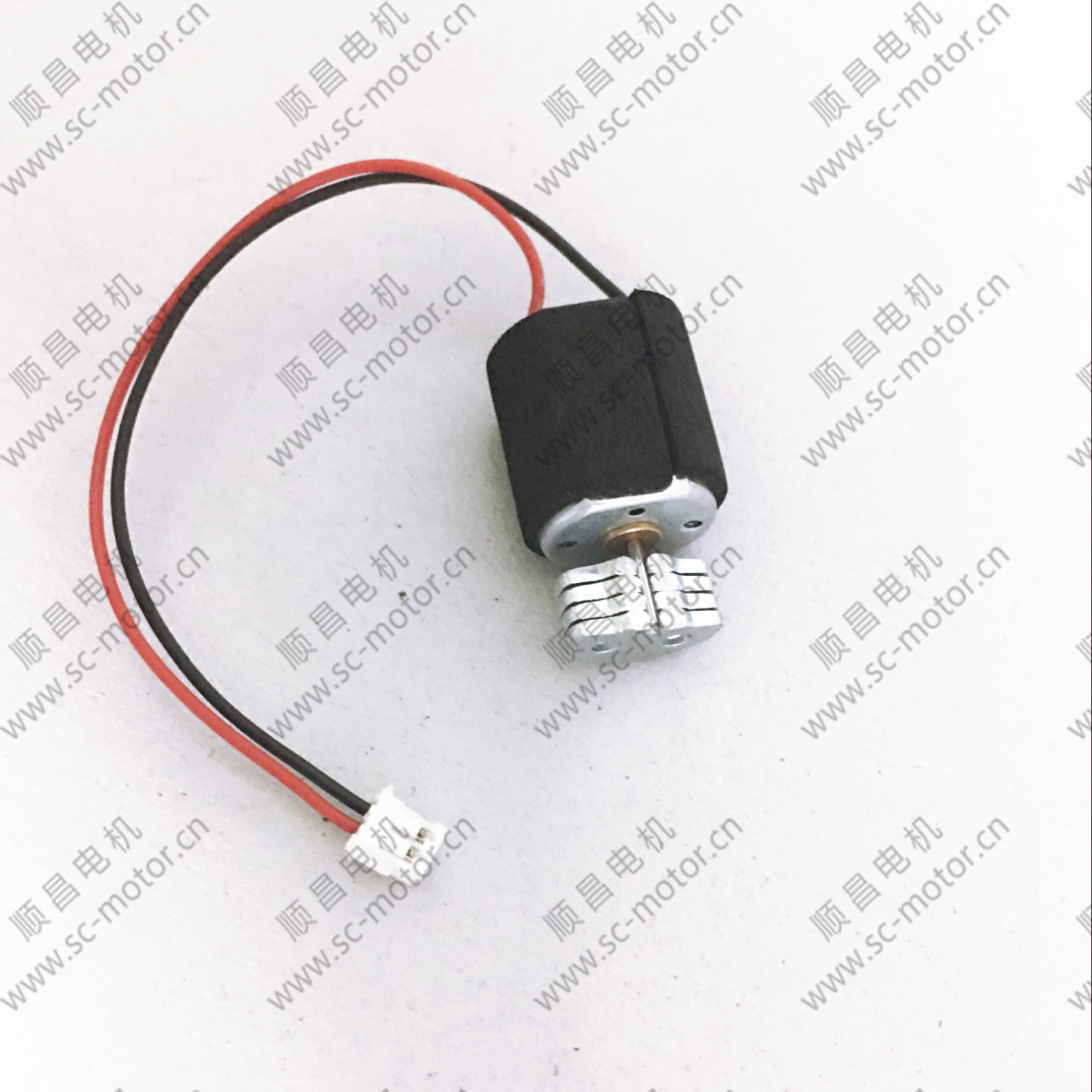
Operating temperature range:
Cosmetic Instrument Vibration Motor should be used at a temperature of -10~60℃.
The figures stated in the catalog specifications are based on use at ordinary room temperature catalog specifications re based on use at ordinary room temperature (approximately20~25℃.
If a Cosmetic Instrument Vibration Motoris used outside the prescribed temperature range,the grease on the gearhead area will become unable to function normally and the motor will become unable to start.Depending on the temperature conditions ,it may be possible to deal with them by changing the grease of the motor's parts.Please feel free to consult with us about this.
Storage temperature range:
Cosmetic Instrument Vibration Motor should be stored ta a temperature of -15~65℃.
In case of storage outside this range,the grease on the gearhead area will become unable to function normally and the motor will become unable to start.
Service life:
â—Use with a load that exceeds the rated torque
â—Frequent starting
â—Momentary reversals of turning direction
â—Impact loads
â—Long-term continuous operation
â—Forced turning using the output shaft
â—Use in which the permitted overhang load or the permitted thrust load is exceeded
â—A pulse drive ,e.g.,a short break,counter electromotive force,PWM control
â—Use of a voltage that is nonstandard as regards the rated voltage
â—Use outside the prescribed temperature or relative-humidity range,or in a special environment.
â—Please consult with us about these or any other conditions of use that may apply,so that we can be sure that you select the most appropriate model.
when it come to volume production,we're a major player as well .each month,we rurn out 600000 units,all of which are compliant with the rohs directive.Have any questions or special needed, please contact us, we have the engineer group and best sales department to service to you Looking forward to your inquiry. Welcome to our factory.

Cosmetic Instrument Vibration Motor,Face Brush Vibration Motor,Electric Cosmetic Instrument Vibration Motor,Cosmetic Instrument Mini Vibration Motor
Shenzhen Shunchang Motor Co., LTD. , https://www.scgearmotor.com